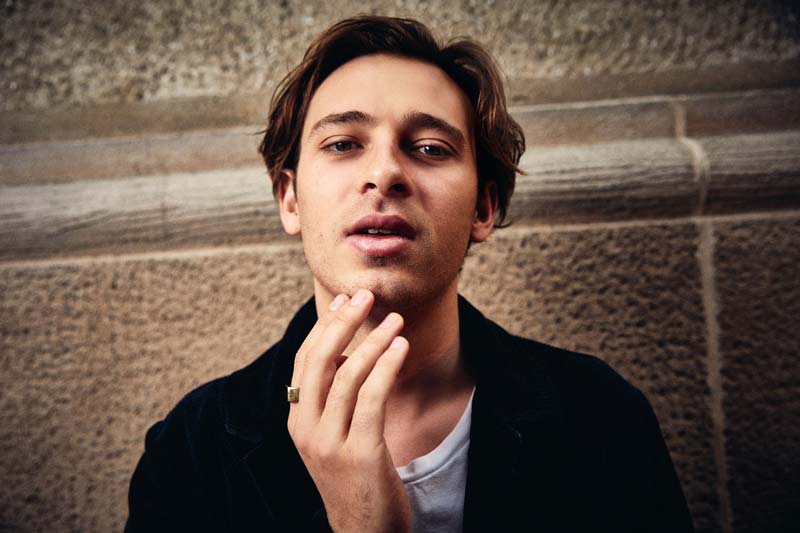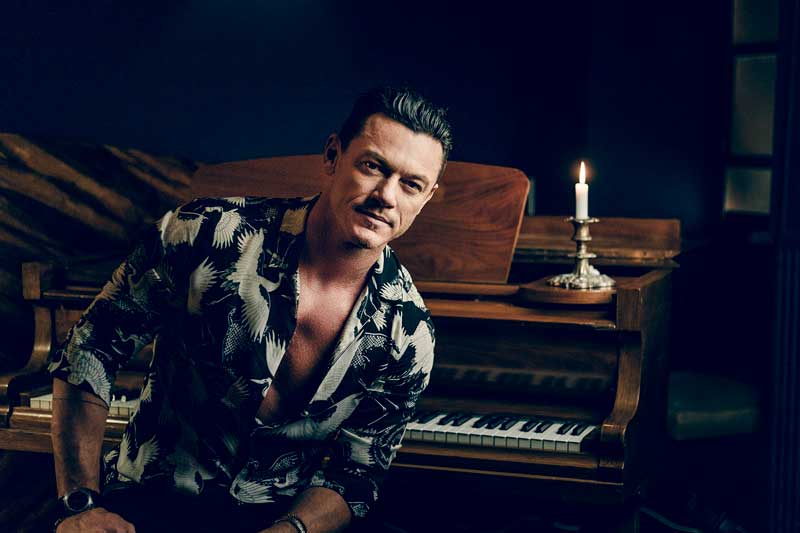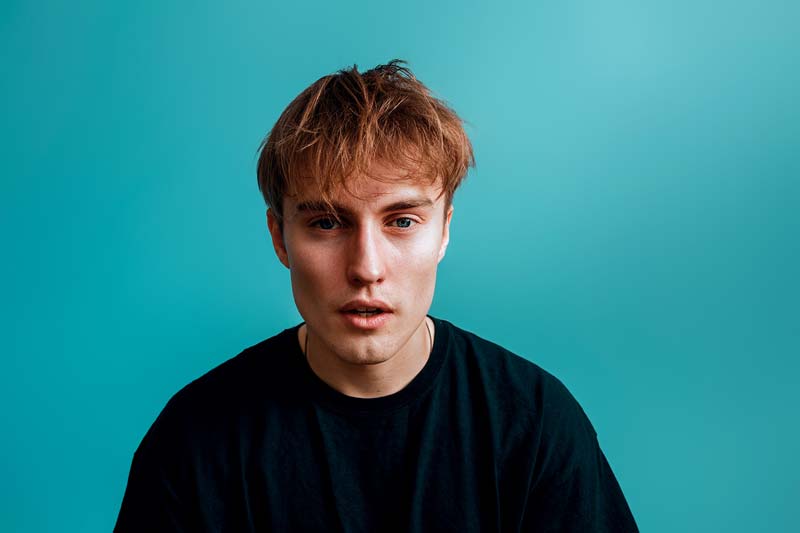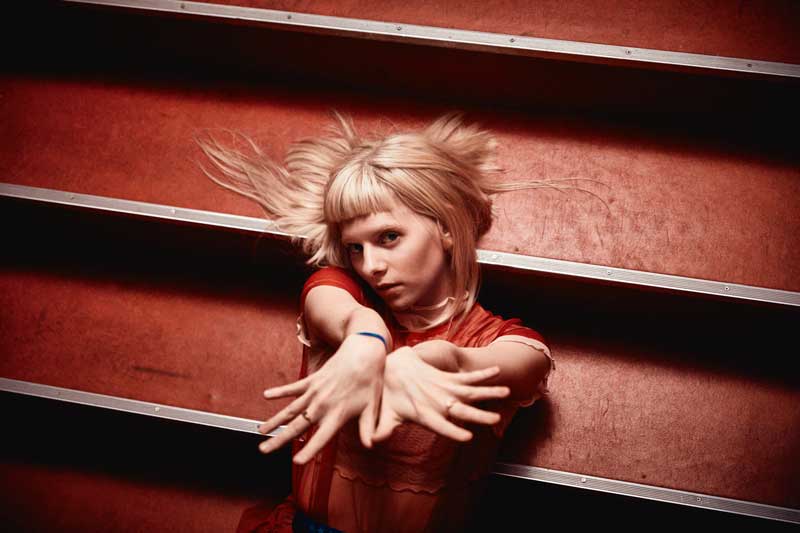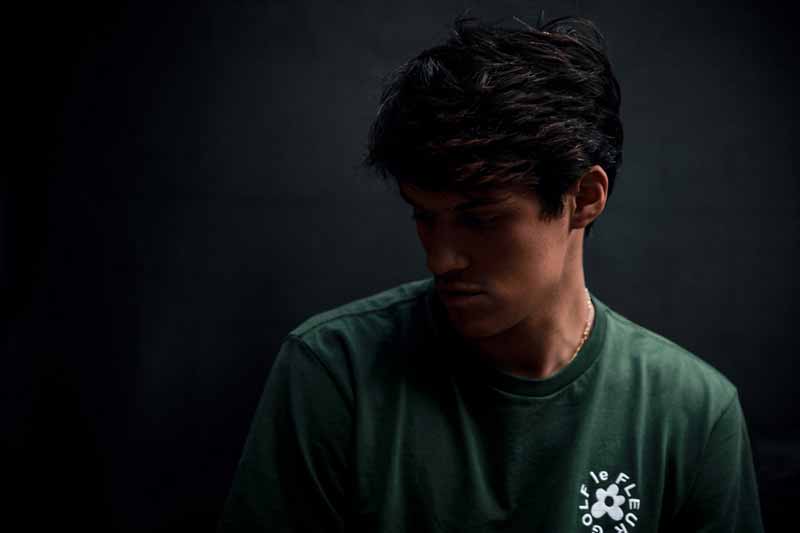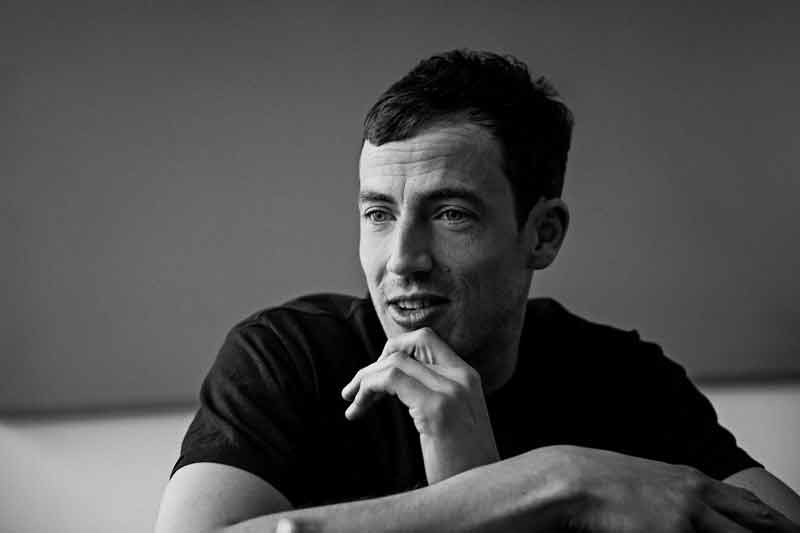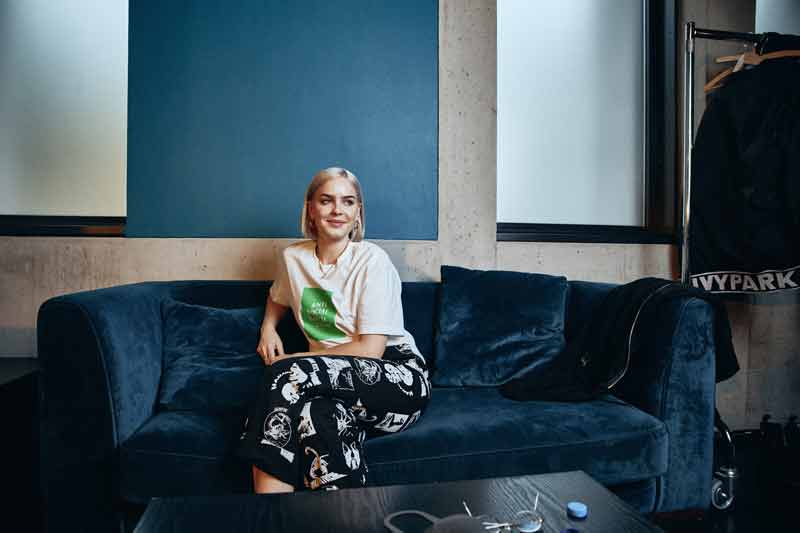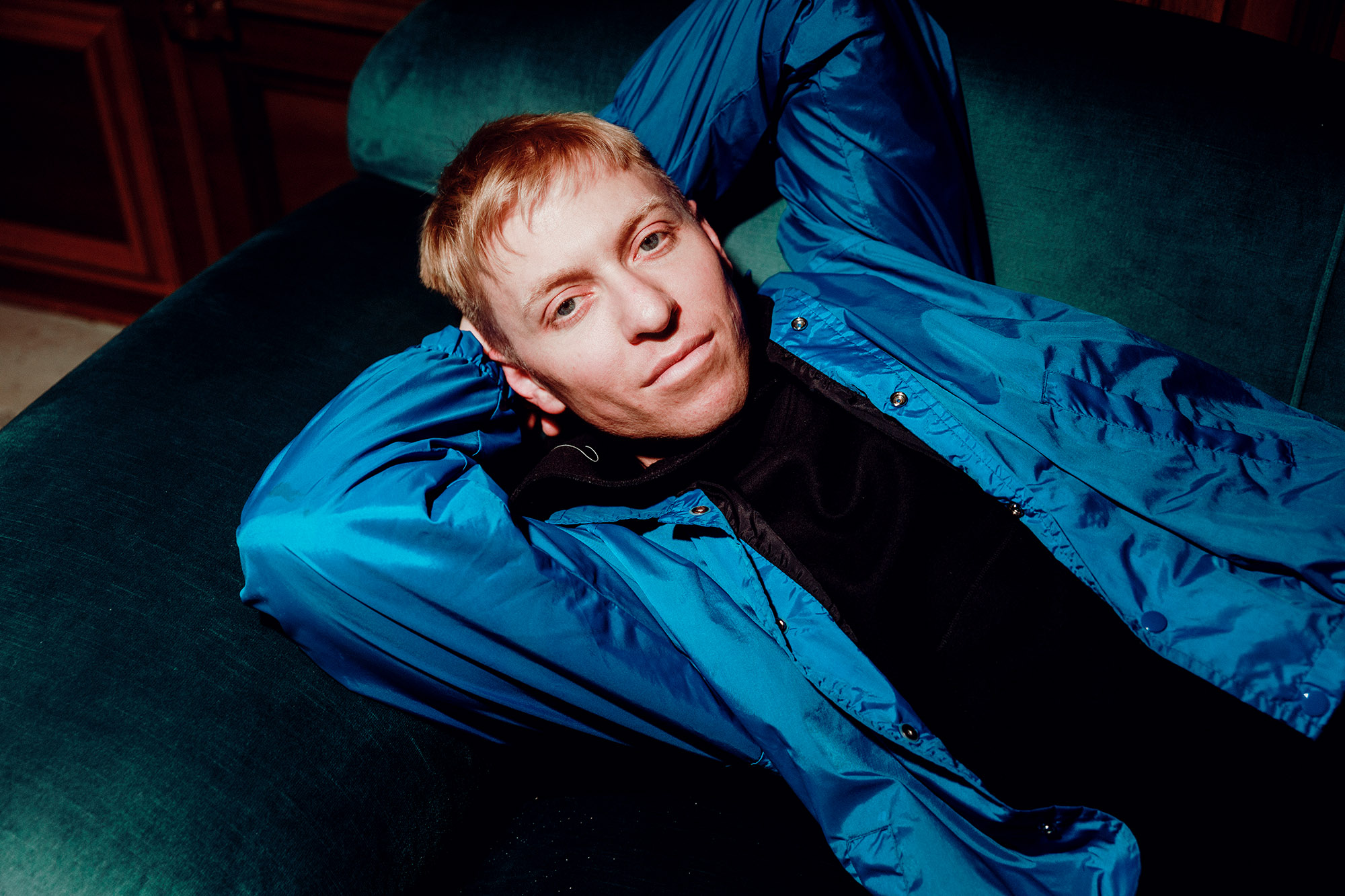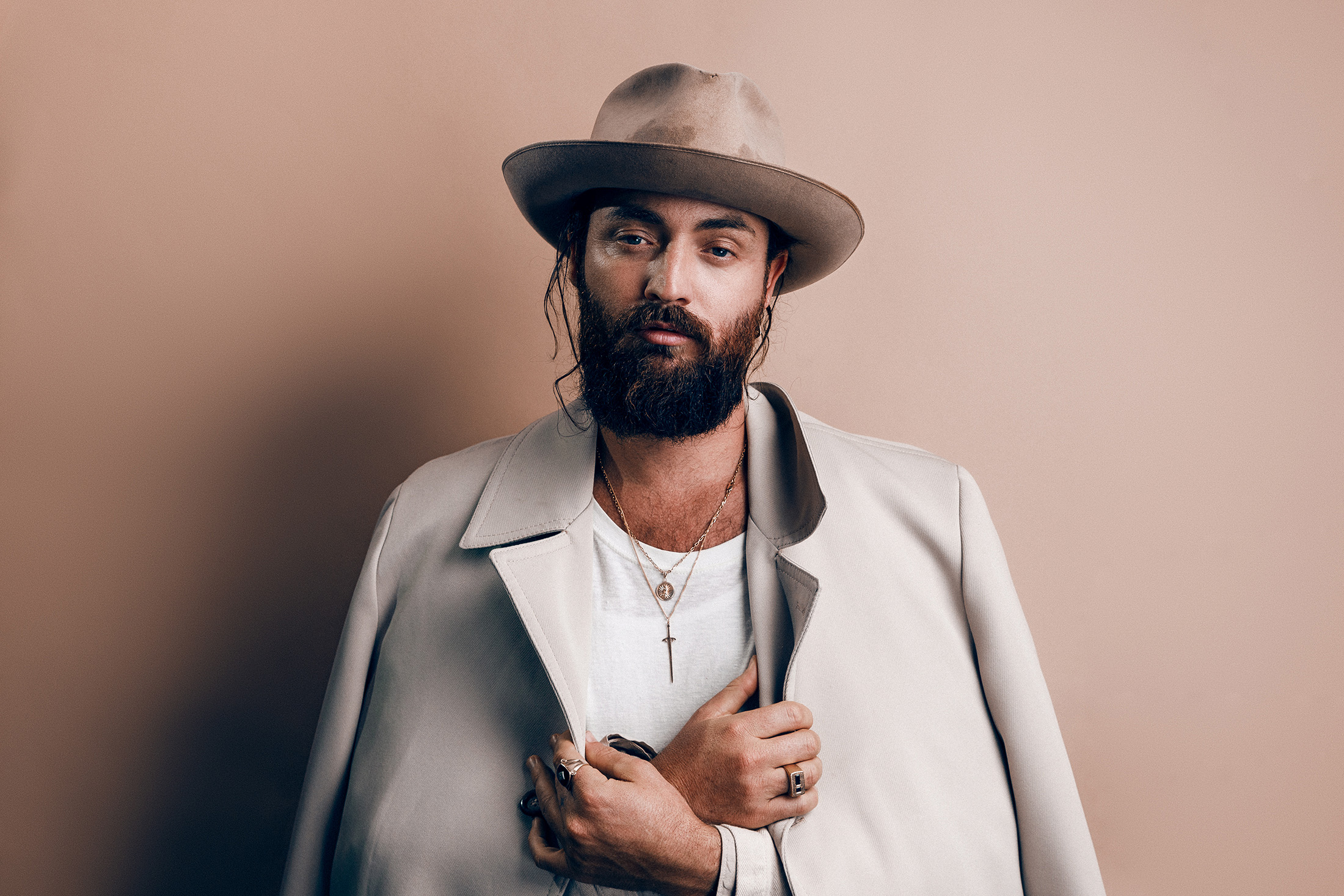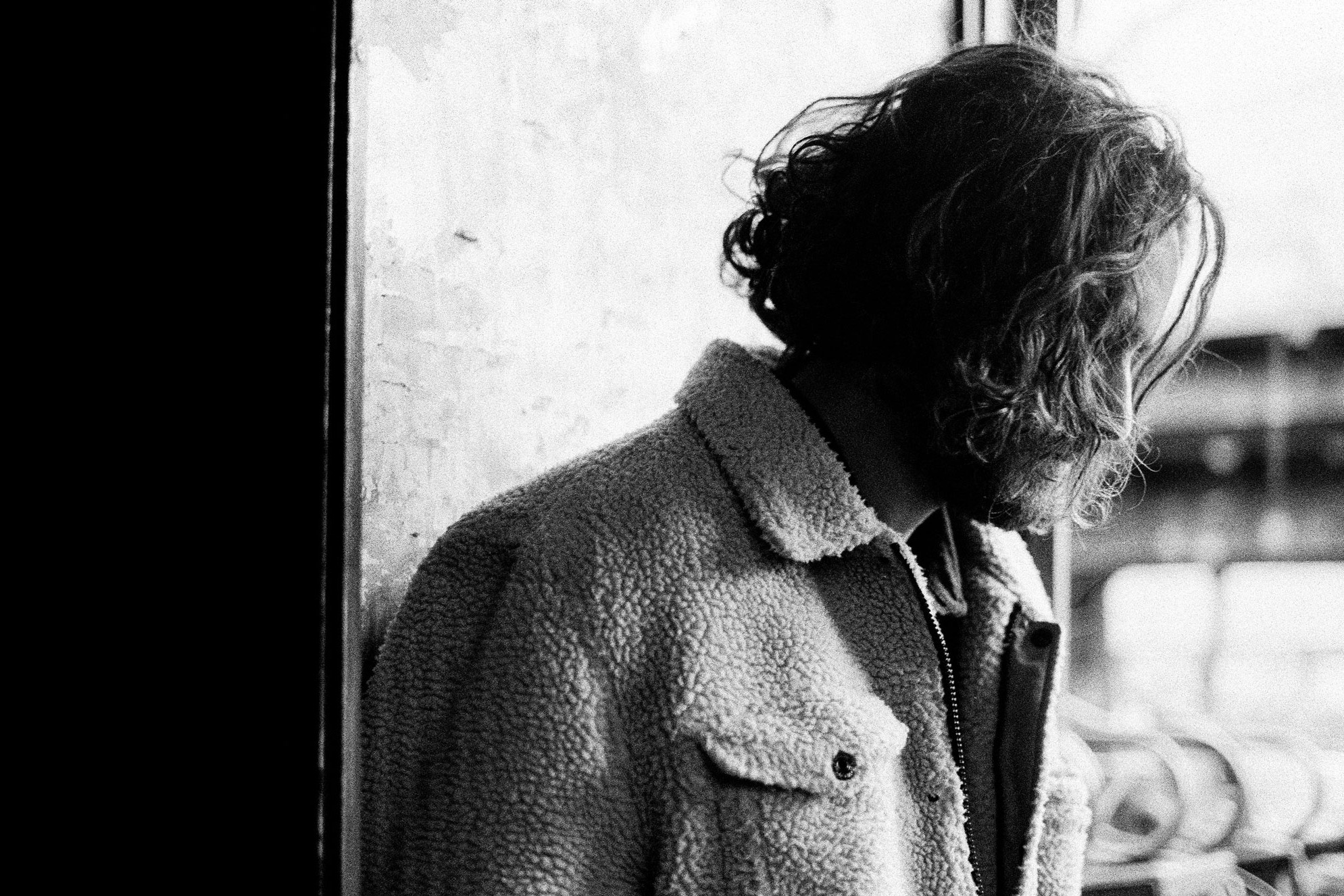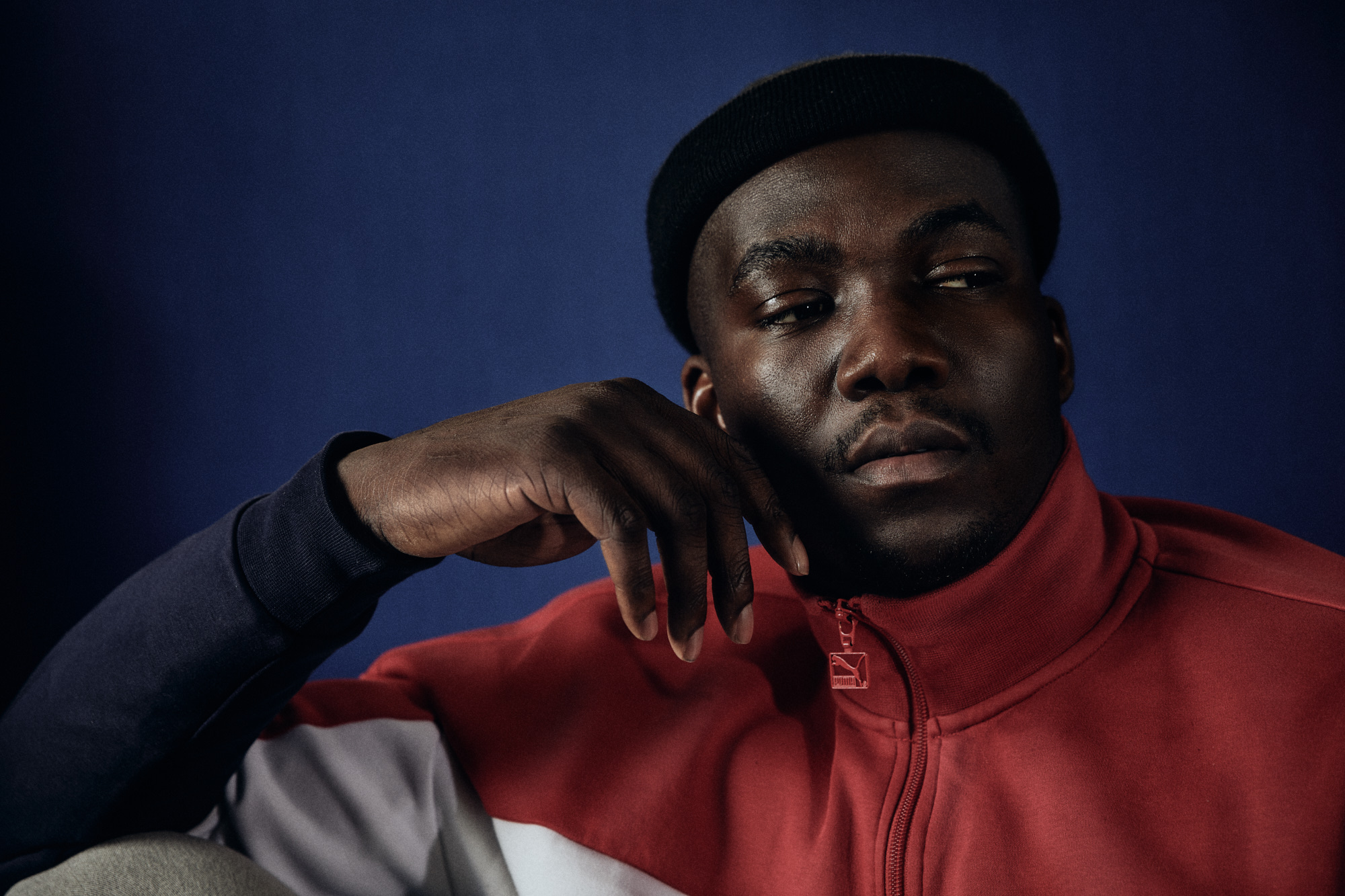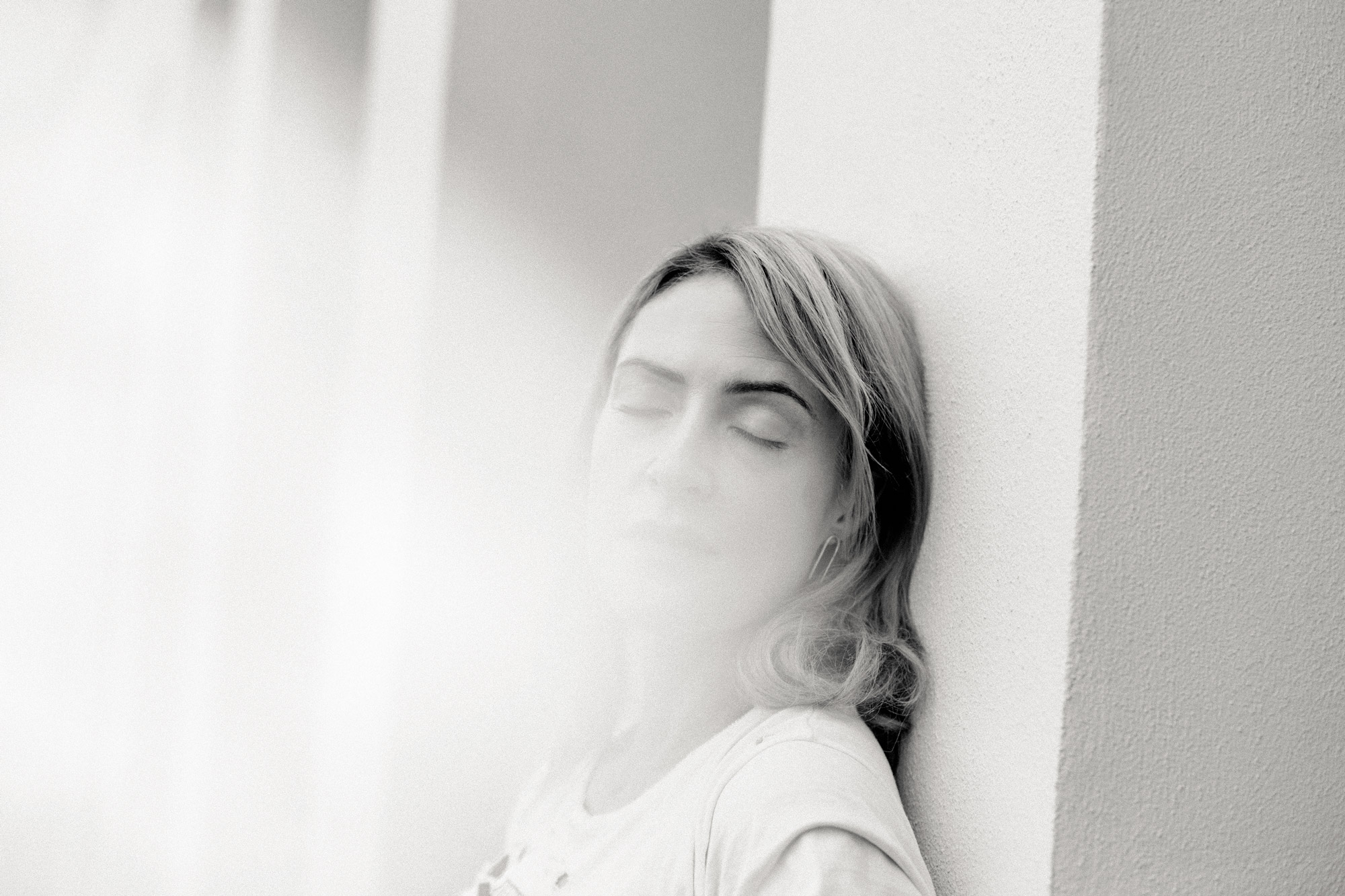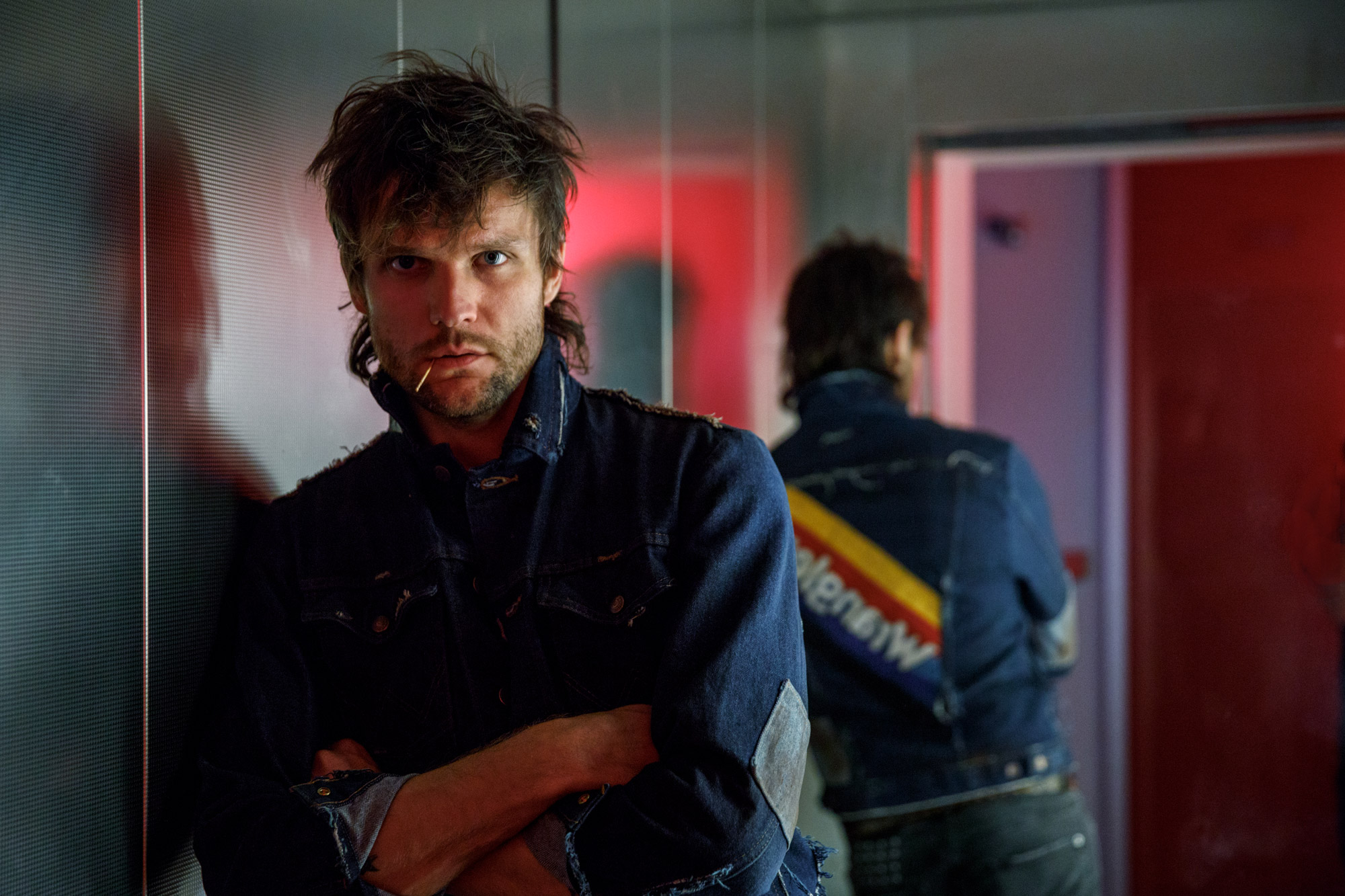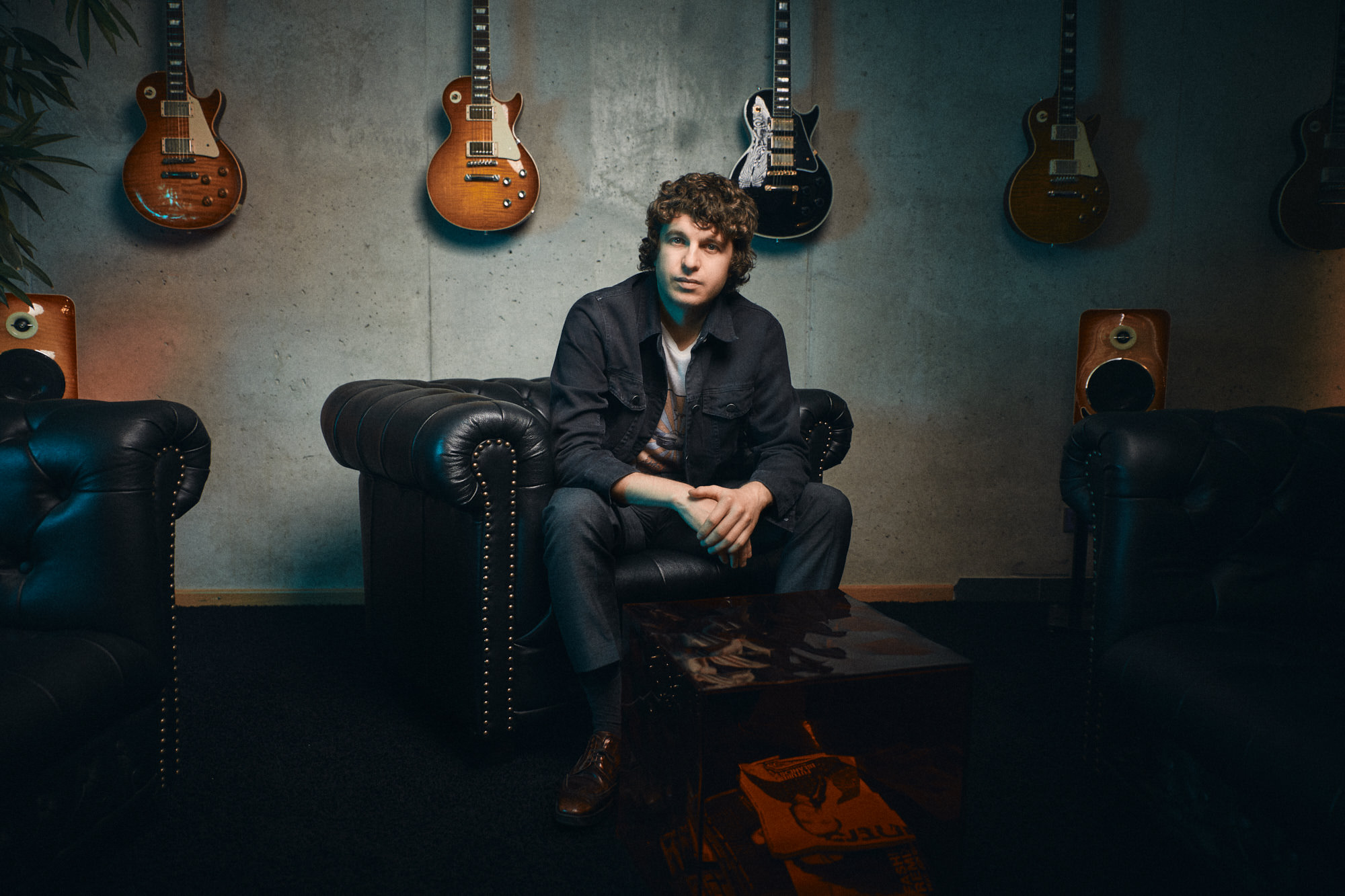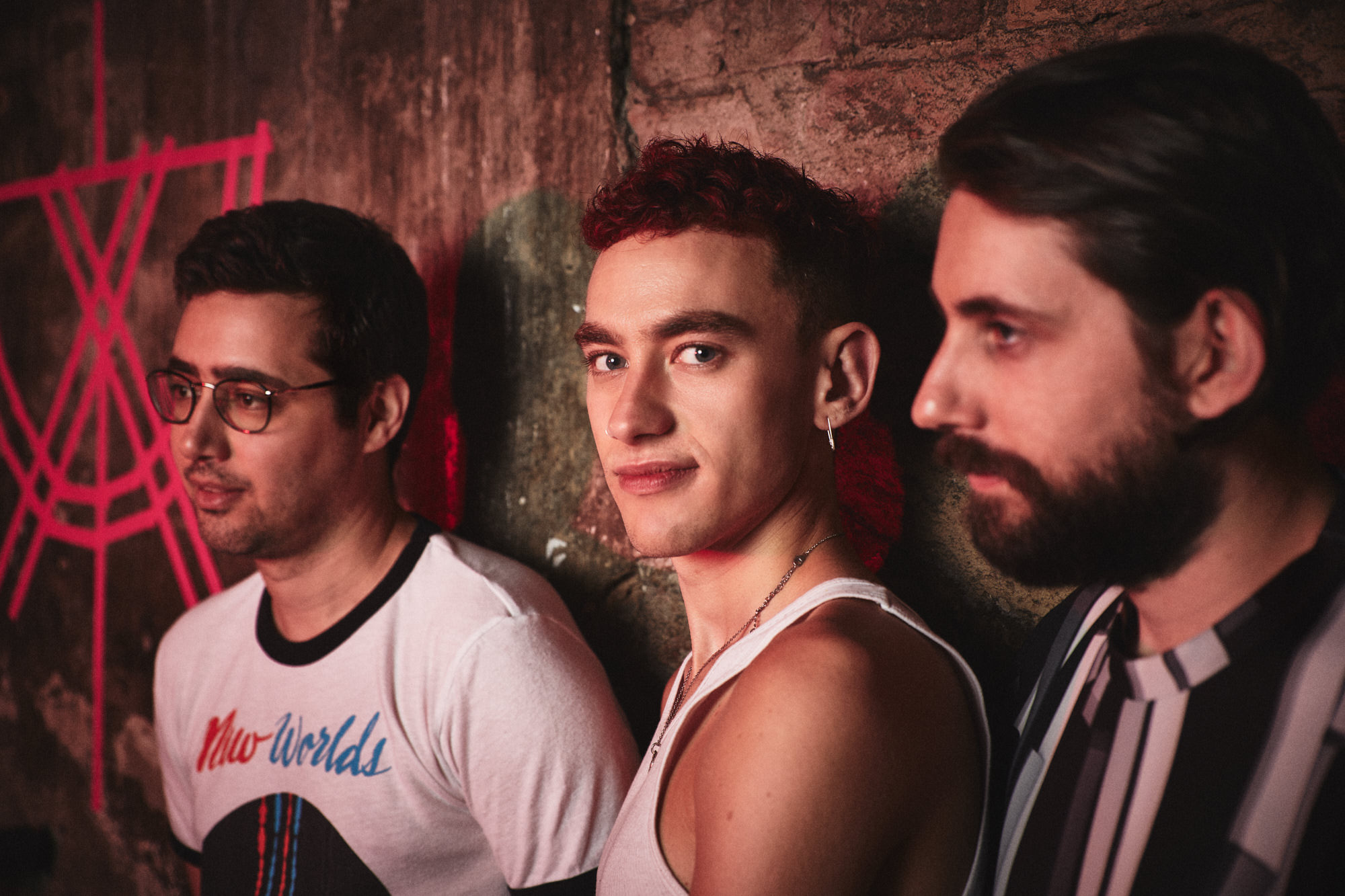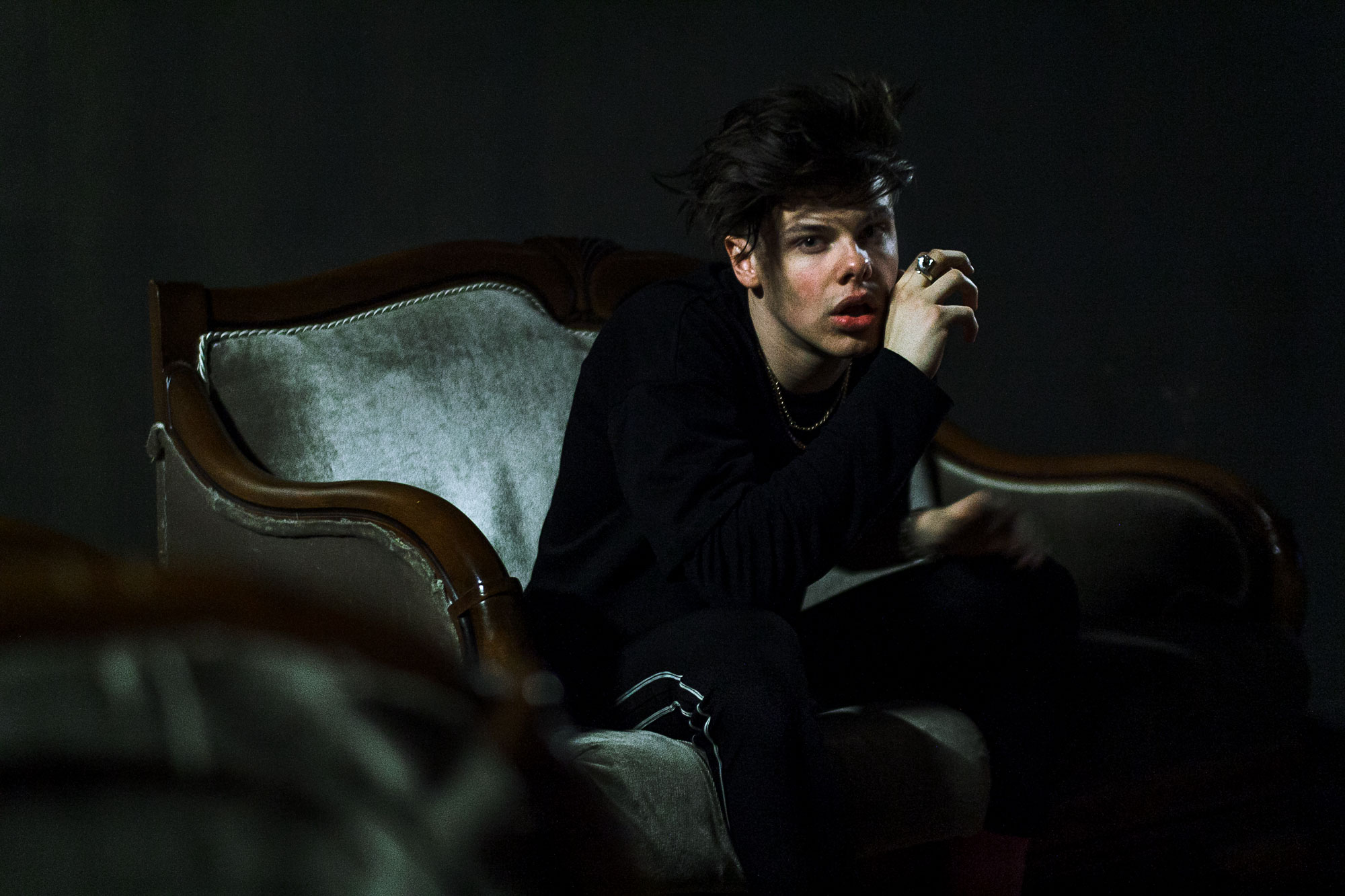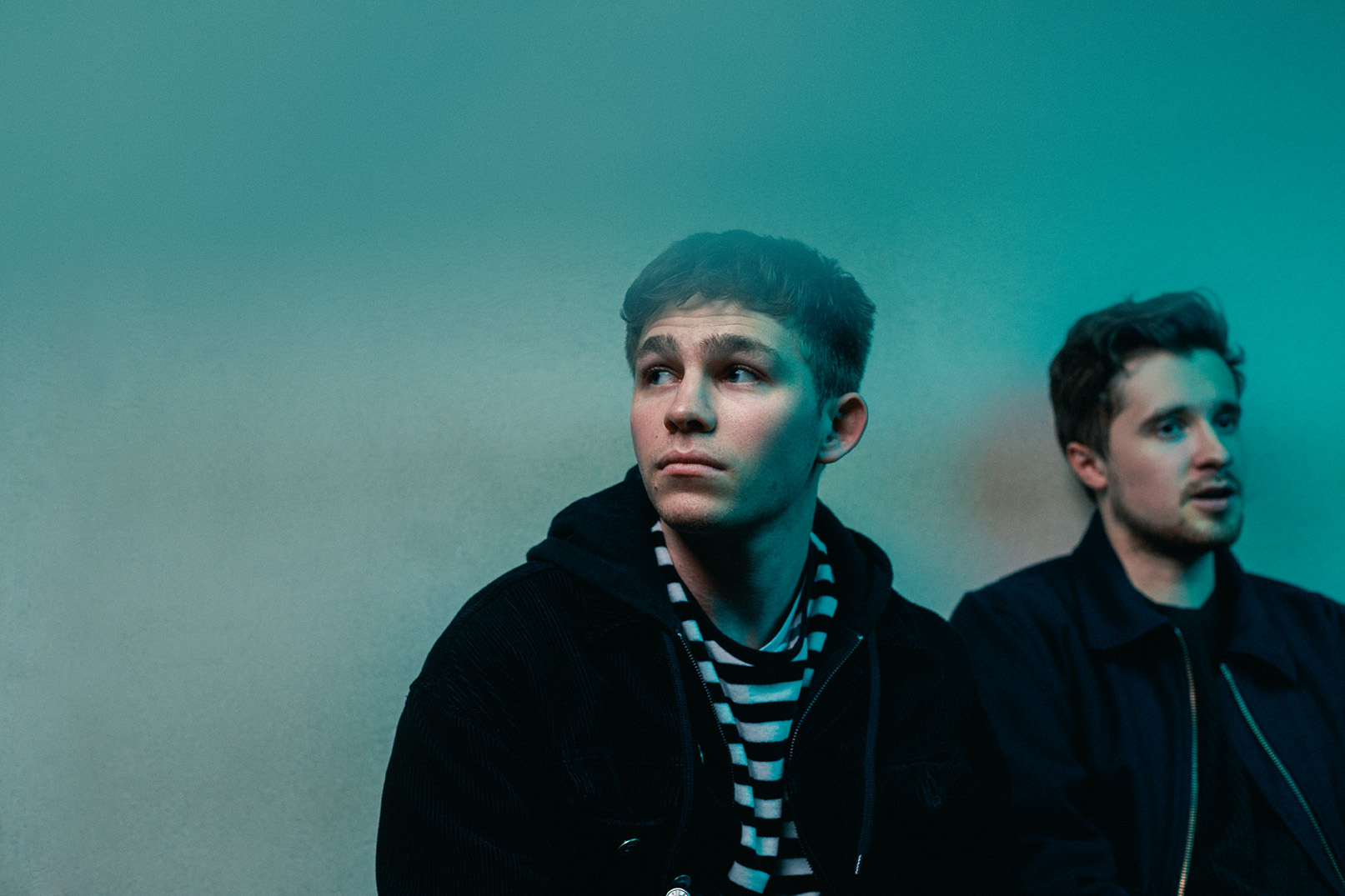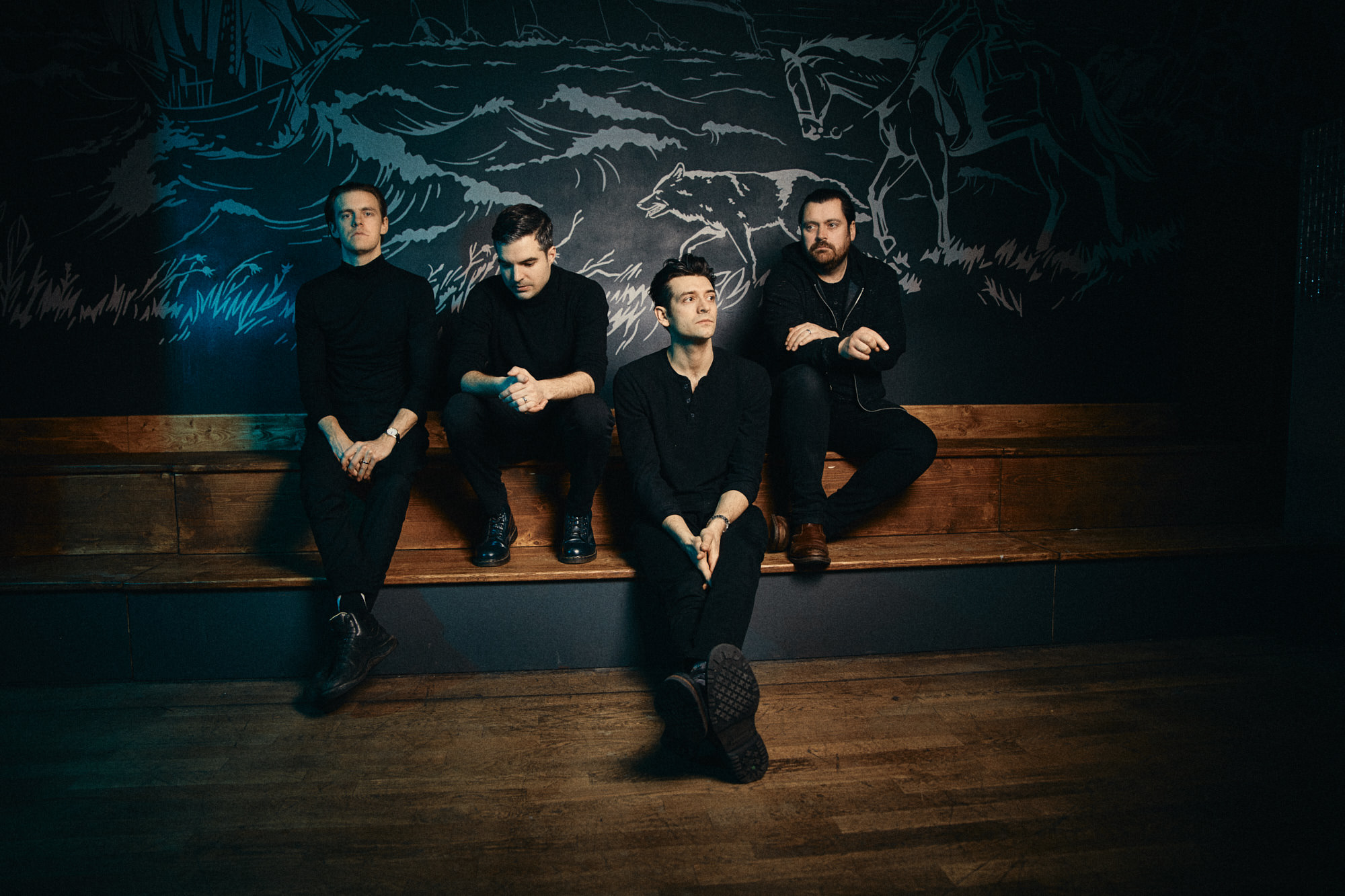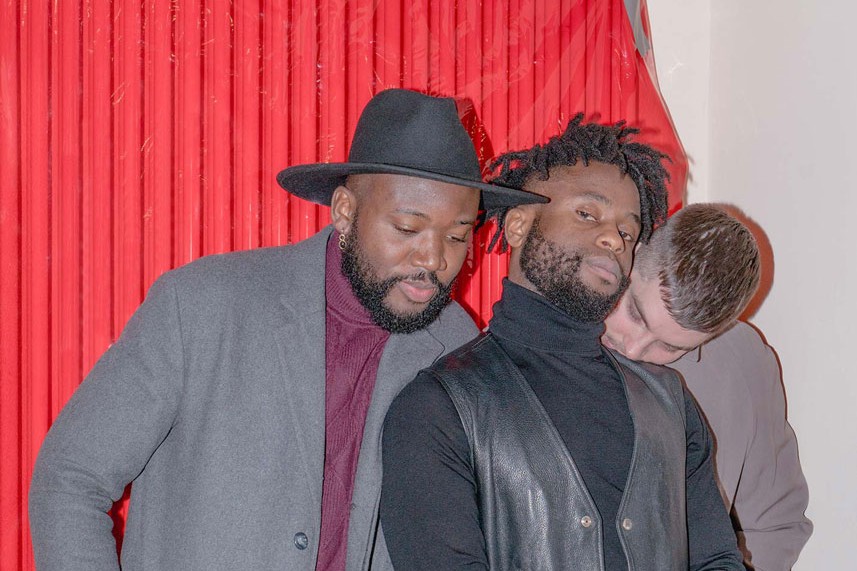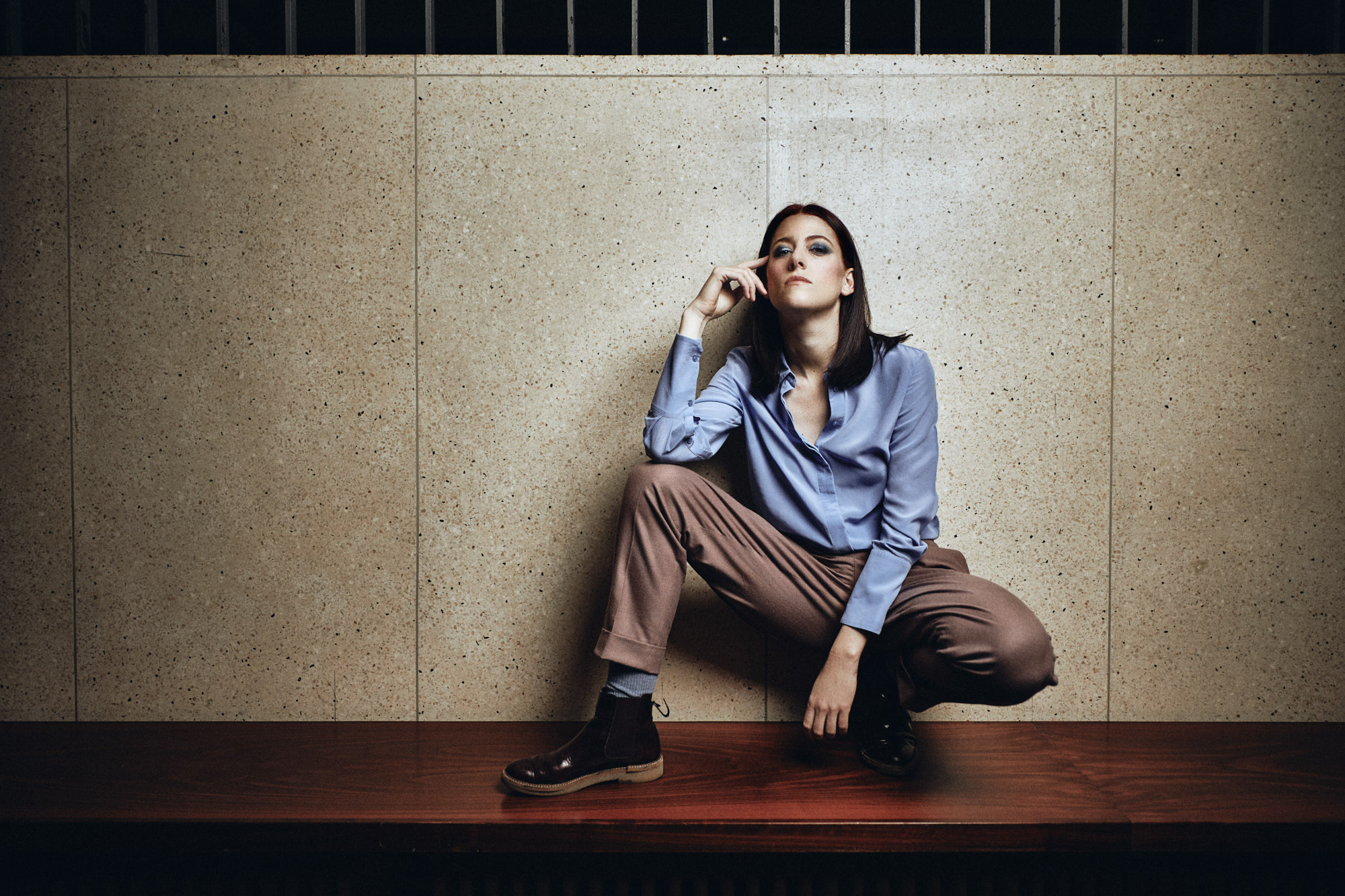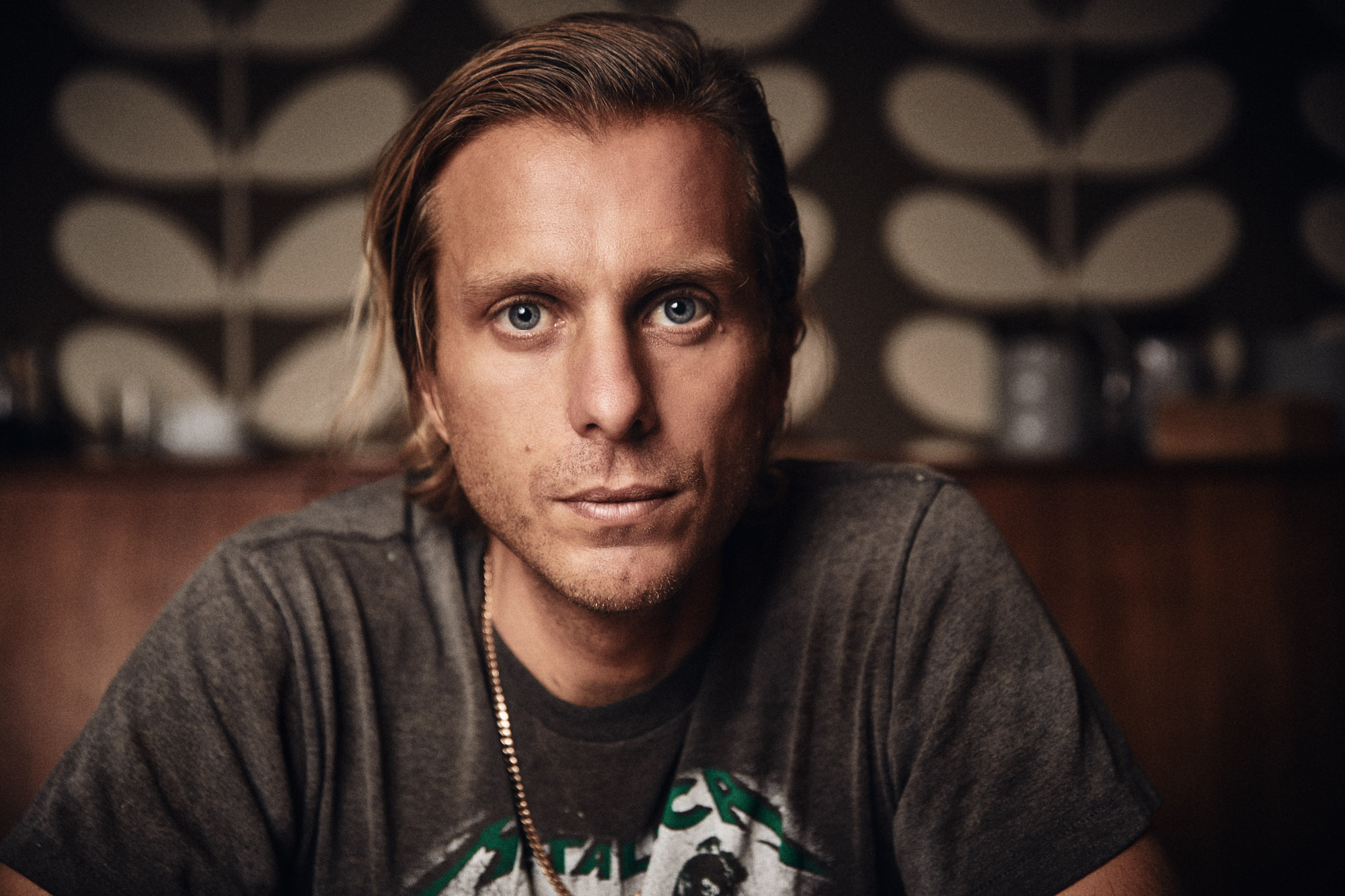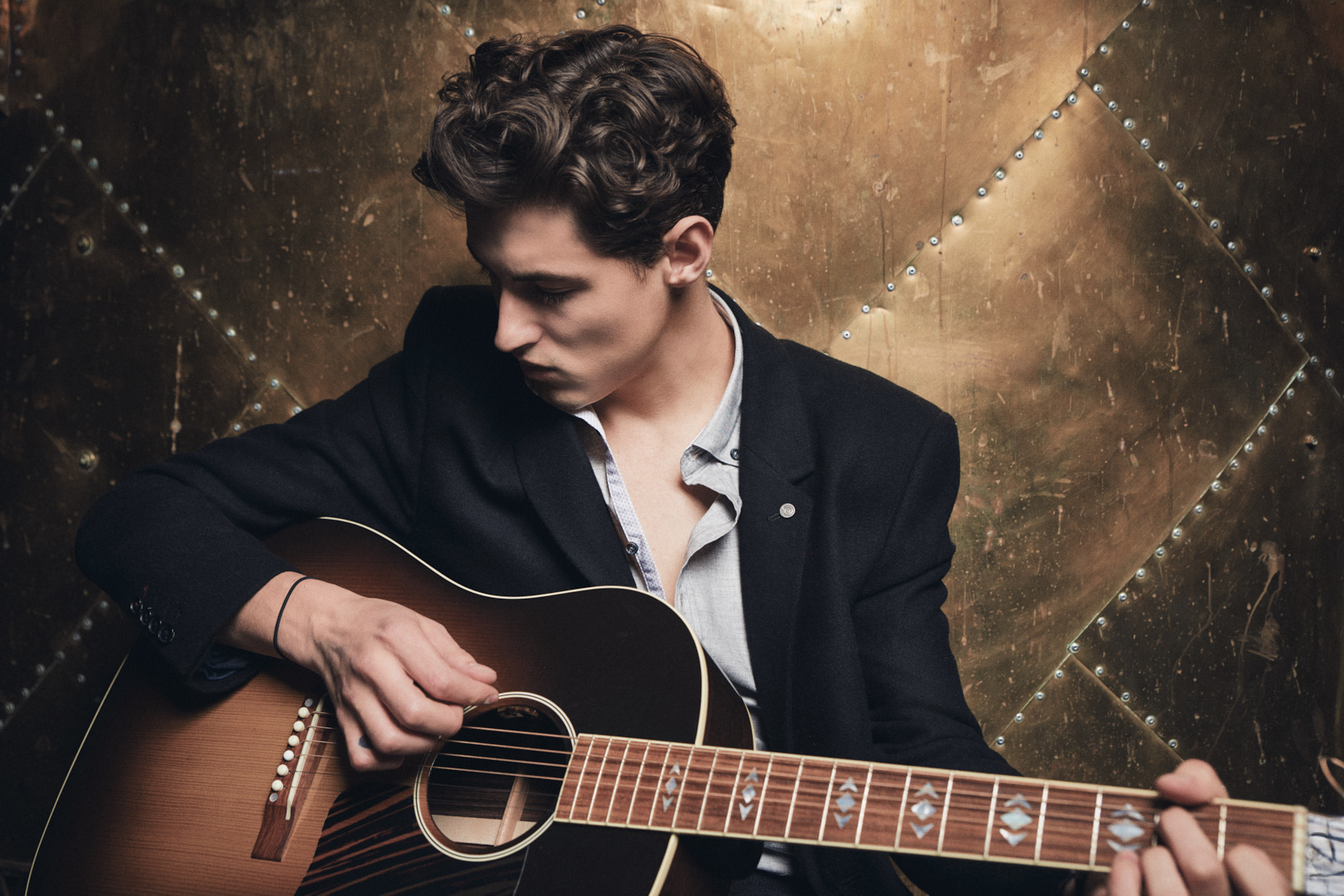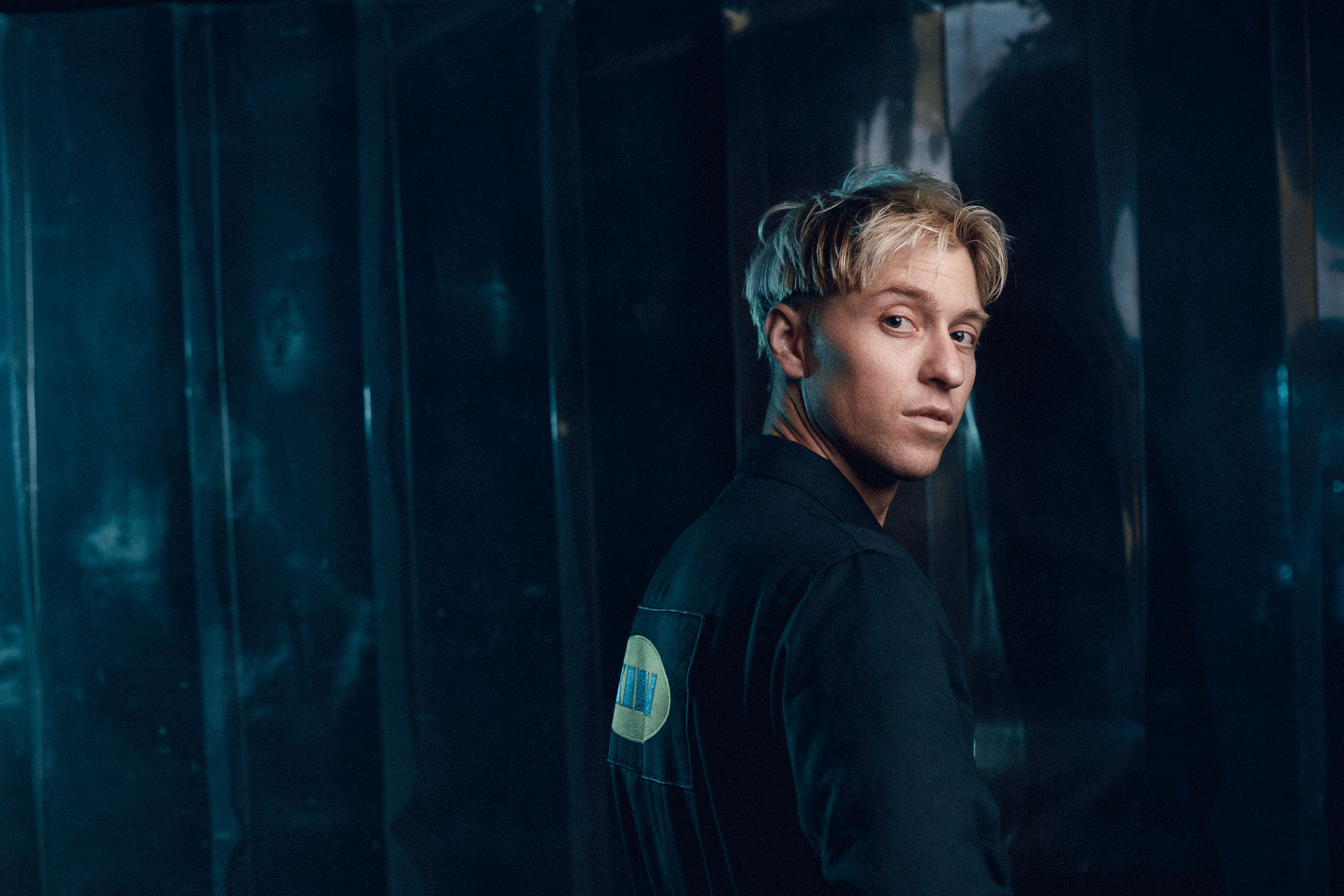Interview — Maggie Rogers
21st Century Woman
Two years ago at NYU, then-student Maggie Rogers enchanted Pharrell Williams in front of a camera by presenting her song “Alaska.” The video went viral, and the young musician from Maryland became known around the world. Now she has released her long-awaited debut album “Heard It In A Past Life.”
18. Januar 2019 — MYP N° 24 »Tomorrow« — Interview: Jonas Meyer, Photography: Steven Lüdtke
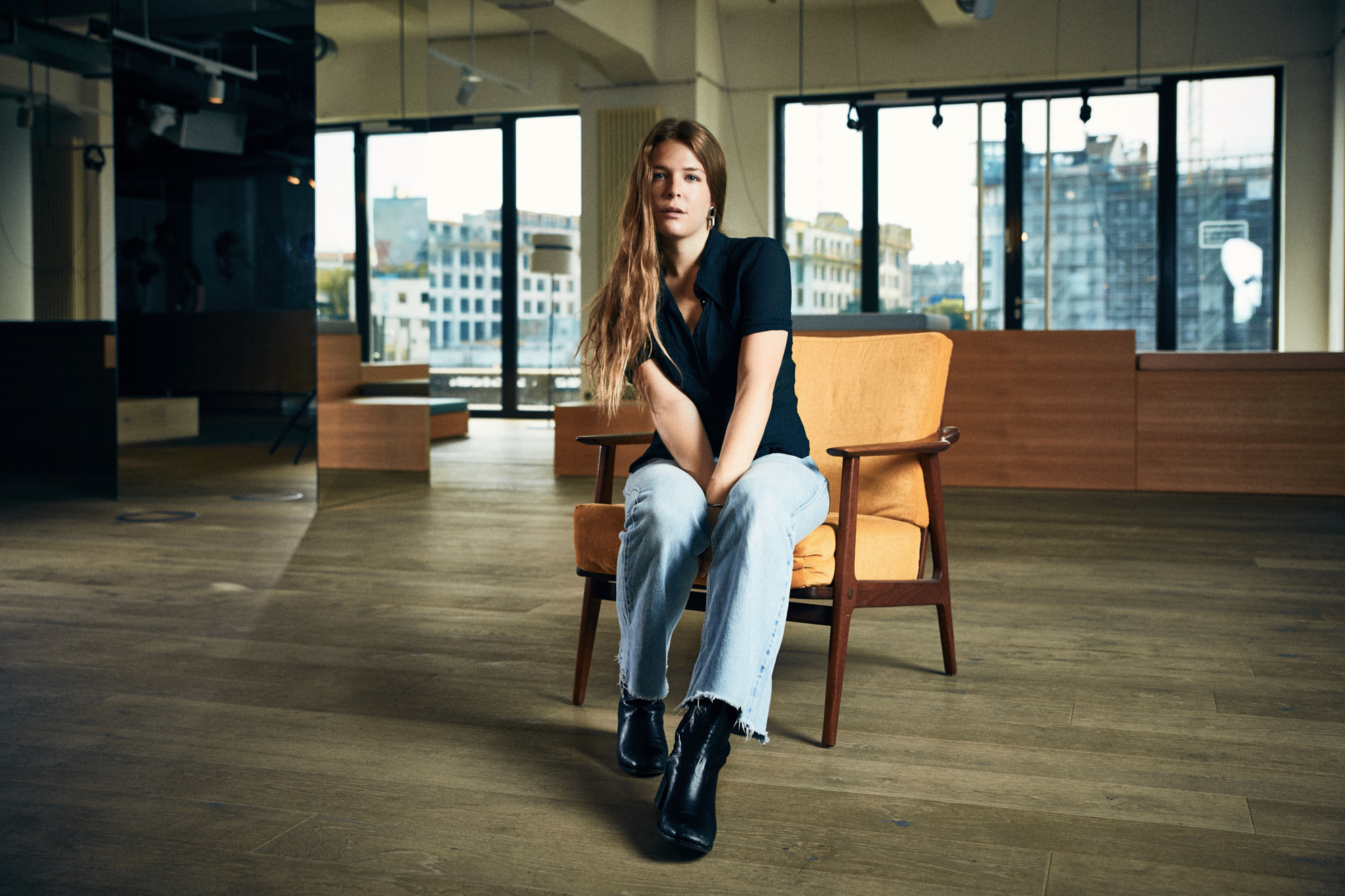
A drained pool in the backyard of a small house somewhere in a suburb of Los Angeles. The Californian sun shines through the palm trees, the only thing that lights up this lost place. The scenery looks like it’s stuck somewhere in the 70s. A young woman enters the scene, wearing white cowboy boots, red sport shorts, and an oversized white T-shirt. Sitting on a white plastic chair, she starts singing: “If I was who I was before / Then I’d be waiting at your door / But I cannot confess I am the same.” Then, a couple of seconds later, some other young women join her, dancing and skateboarding in the empty pool.
The young woman is Maggie Rogers, and the group of girls are her friends. Together they perform in the music video for her new song “Give A Little” that is part of her debut album Heard It In A Past Life that she just released. The joyful video is inspired by the skateboard culture of the 70s that was born in the rough Dogtown area of Santa Monica, California. The small difference is that at that time, mostly boys could be seen on skateboards. But in this video, no boys can be seen.
Maggie Rogers was introduced to the world by chance when she left Pharrell Williams speechless in early 2016. Back then, Maggie was studying at The Clive Davis Institute of Recorded Music at NYU’s Tisch School of the Arts, where Pharrell Williams hosted a masterclass for music students. A couple of them had the chance to present their projects to the world-famous producer and music artist, who offered constructive criticism to the students. When it was Maggie’s turn, she played her song “Alaska.” With every second listening to it, the smile on Pharrell’s face became brighter and brighter. When the song was over, Pharrell just said “Wow,” followed by a second “Oh wow.”
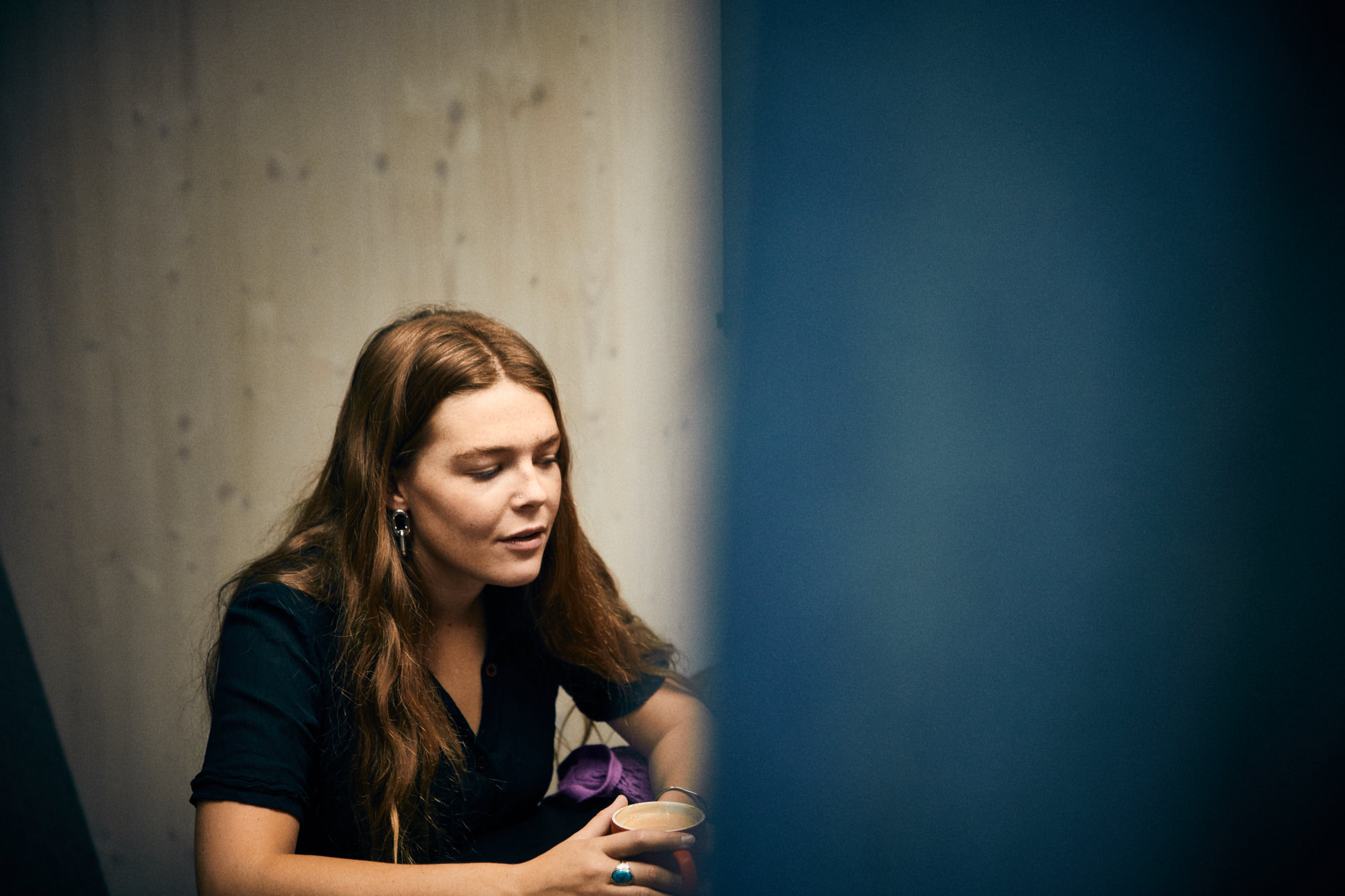
»In Maryland I had the privilege of growing up really slowly.«
Jonas:
If you could be a teenager again, would you like to grow up again in Easton, Maryland, as you did in the early 2000s? Or would you prefer to grow up in the Dogtown area of Santa Monica in the 1970s—the place that inspired your “Give A Little” video?
Maggie:
I think I loved growing up in Maryland, I don’t know if I would change anything about where I’ve been because it’s brought me where I am. Growing up in Maryland was calm and quiet—in so many ways. When I think about that area in Dogtown in the 70s, those guys grew up very quickly which is why they were so creative and free and why so much came out of it. In Maryland I had the privilege of growing up really slowly. I was an 18-year-old playing cards on a Saturday night—which is crazy! That means that I had way more fun when I went to New York, but I also know how to have fun just by making my own fun. And that’s something I’m really glad I have.
»Creativity comes out of boredom, it’s really important to just have nothing to do.«
Jonas:
Do you think that even today, in the world of 2018, it is possible to grow up so slowly?
Maggie:
It depends. I think you have to be deliberate about it. That was a choice that my family and I all really purposefully made and as I got older, I continued to choose that. Just because I think that creativity comes out of boredom, it’s really important to just have nothing to do—so that you go on to make things to fill this phase. But I think anything is possible today. I mean, people say that there’s so much stimulation and we have a problem with social media, but ultimately, that’s consistently a choice. So choose something else!
Jonas:
Your music video “Give A Little” is very much inspired by Catherine Hardwicke’s movie Lords Of Dogtown from the year 2005. Why is this movie so important to you?
Maggie:
I don’t know. It was just a movie that my friends and I loved watching when we were in high school. I had two best friends, Lucy and Molly, and the three of us would just go skateboarding all the time together. So, I think I just saw myself in it. And there is this really, really raw energy in the sense of a competitive adventure to those guys which I think about a lot when I think about performance. It’s sort of “How can you do that?! Ok, I’m gonna do it!” It’s consistently pushing you out of your comfort zone.
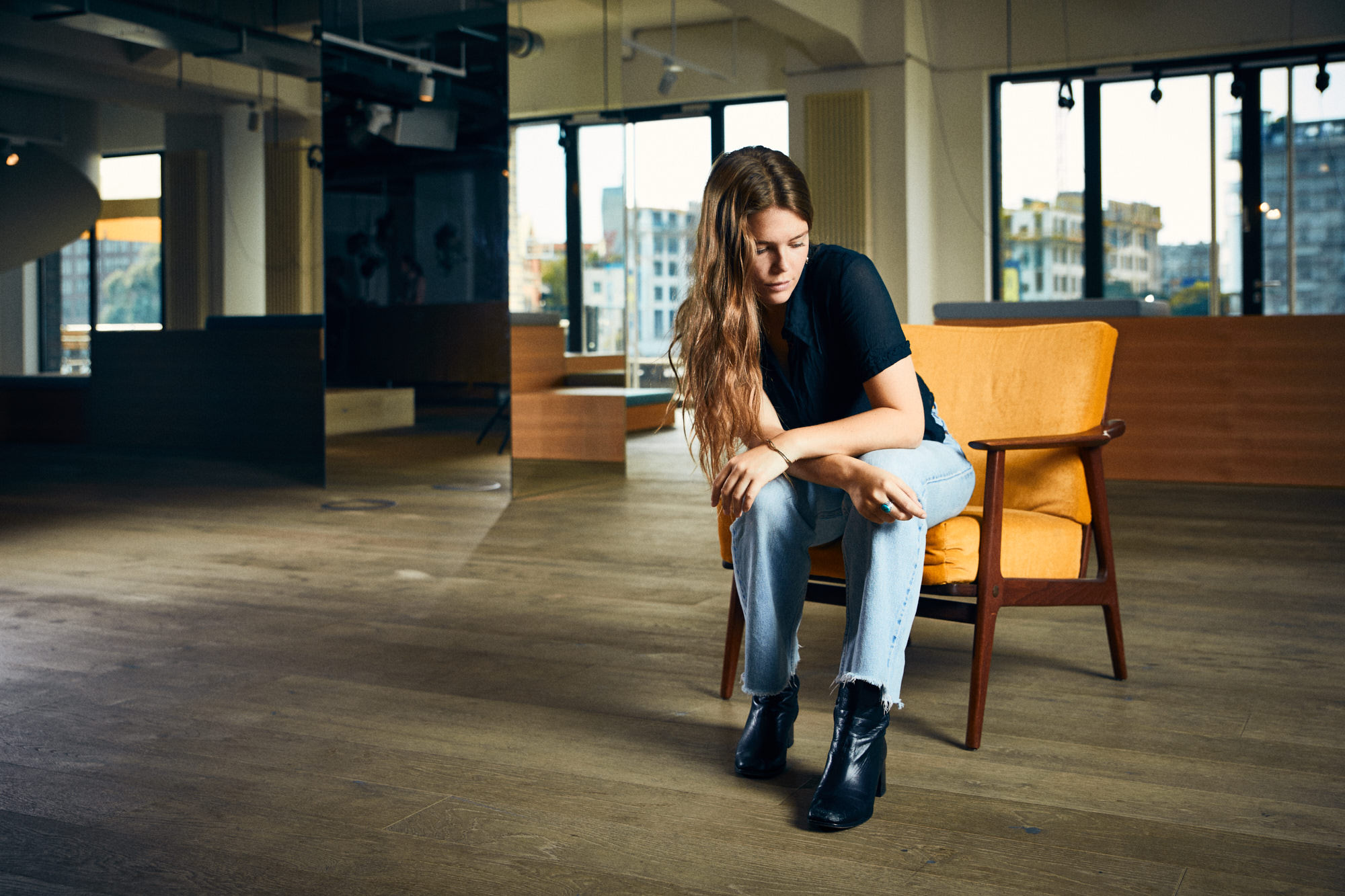
»Every chance to create is a chance to have fun.«
Jonas:
Five days before the release of the clip, you posted on Facebook a screen video that reenacted a group chat with Camila Mendes and Rachel Matthews—two of your “best college pals,” as you called them. It shows how you asked them to contribute to your “Give A Little” clip as protagonists. Why did you—as the one who directed the music video—decide to make a big, funny friends gathering out of it?
Maggie:
It’s a lot of the spirit of the song. It makes me really happy and it makes me want to dance with my friends. The song is about something like skateboard culture and I was connected to these images. But there are often only men in these photos, although there are some insane female skateboarders and although female skateboarding culture is just as powerful. I wanted to recreate these images I was connecting to with images of all women. I generally think that every chance to create is a chance to have fun…
Jonas:
What a sentence!
Maggie:
I mean, there’s so much space for this topic to get serious and very intense. But to be honest, I just really missed my friends. It’s like a dream day: hang out with my best friends doing dances, it’s just like, “Why not?”
Jonas:
Are you very movie-addicted?
Maggie:
No, I’m not—which is interesting because I feel so connected with Lords Of Dogtown. I didn’t grow up with TV or watching films, and I still don’t.
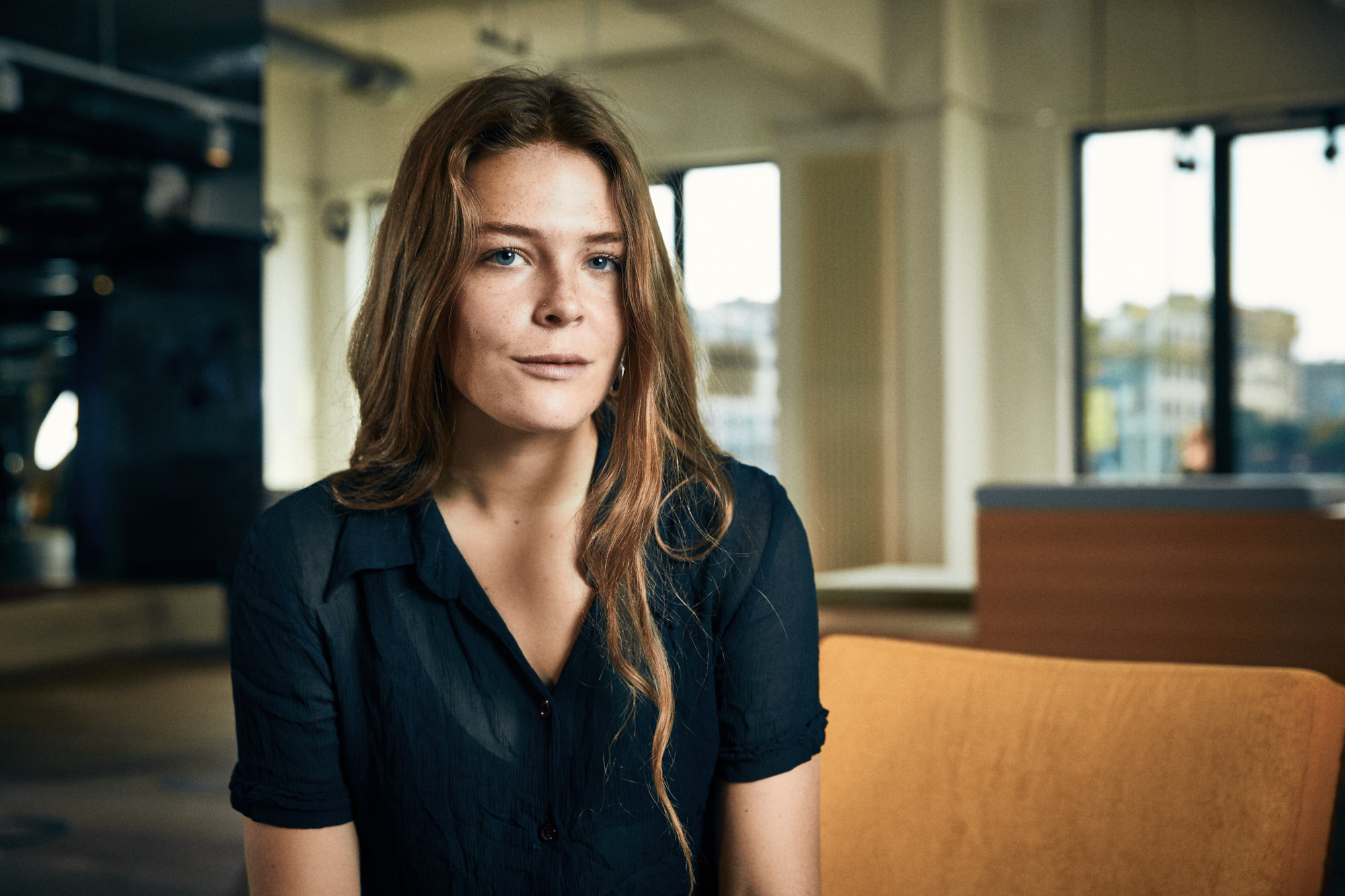
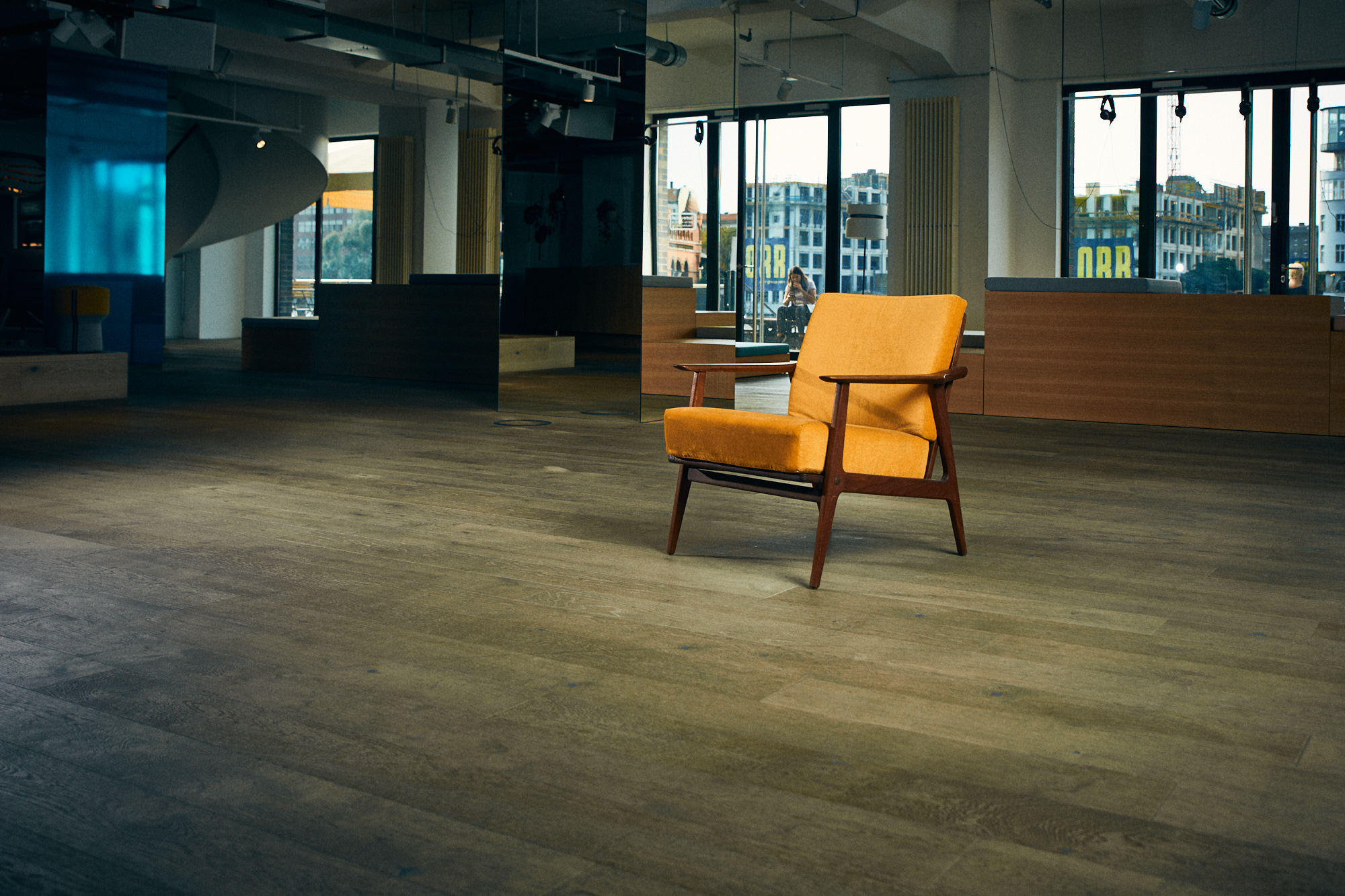
»I want to see more people that don’t look like me—because that’s how our world looks like.«
Jonas:
At the end of the friends chat video on Facebook, you wrote that this would be the “reunion of the century.” When I was reading this, I had to think of a wonderful movie that came to the theaters two years ago: 20th Century Women by Mike Mills. It tells the story of three strong women in Santa Barbara exploring love and life in the late 70s. Considering the fact that you replaced the fictional male actors of the Lords Of Dogtown movie by real female characters in “Give A Little,” is your music video also a homage to strong women? Is it a plea for more women’s power that we urgently need in the 21st century?
Maggie:
I feel women’s power has always been there, we got so much of it already. Feminism is about equality, the #MeToo movement is about validating women’s voices and giving them a space to speak. I think it’s mainly about showcasing, women are doing amazing work—as well as men are doing amazing work.
Jonas:
So it’s important to underline it more.
Maggie:
Exactly! That’s something we all can do on a daily basis, it’s just about making mainstream pop culture. The news, for example, just has to represent what our society actually looks like instead of representing how the people in power look like. That means men, that means women, that means people who don’t identify with a gender, that means people of all kinds of races. Our news and culture are often very homogenized, but I want to see more people that don’t look like me—because that’s how our world looks like.
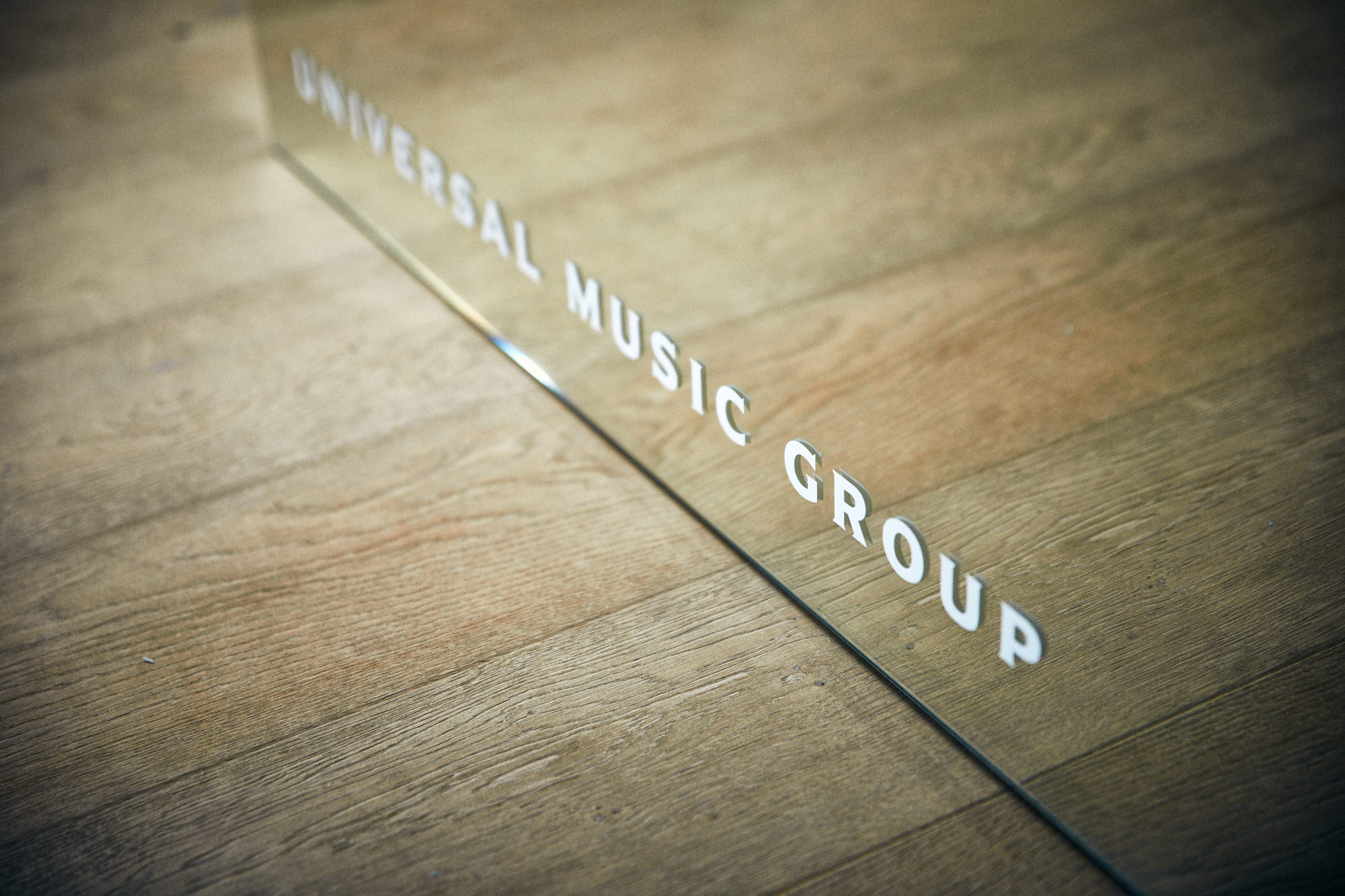
»When I listen to music, I want to be a part of a culture. I want to listen to creators who stand for something and try to connect to something bigger than themselves.«
Jonas:
Speaking of strong women: in 2018 the record The Miseducation Of Lauryn Hill celebrated its 20th birthday. You thanked Lauryn for this on Facebook with the words: “Dear Ms Hill, thank you for fearlessly welcoming us into your world and inspiring me to share my own. Respect and gratitude, MR.” What was it that Lauryn taught you? And what is it what you want to share with your music?
Maggie:
That record is one I grew up with, it’s something that my mom would play for me in the car. It’s like I would roar in the kitchen, it’s like I would know that my mom was having a really great day if I walked into the house and Lauryn Hill was playing. It’s a really special texture as a kid. Now listening to that record as an adult, Lauryn is so vulnerable in it. What I love about it is the use of sound samples and that she’s really capturing her community and sharing it. It feels like such a beautiful, purposeful and forward depiction of exactly what her life looks like. I think something I’ve really learned from Lauryn Hill is transparency. So much of music is just about being yourself. When I listen to music, I want to be a part of a culture. I want to listen to creators who stand for something and try to connect to something bigger than themselves. What Lauryn inevitably did and what I’m trying to do is just create community: to bring people together and to remind them that we may have more in common then they might think.
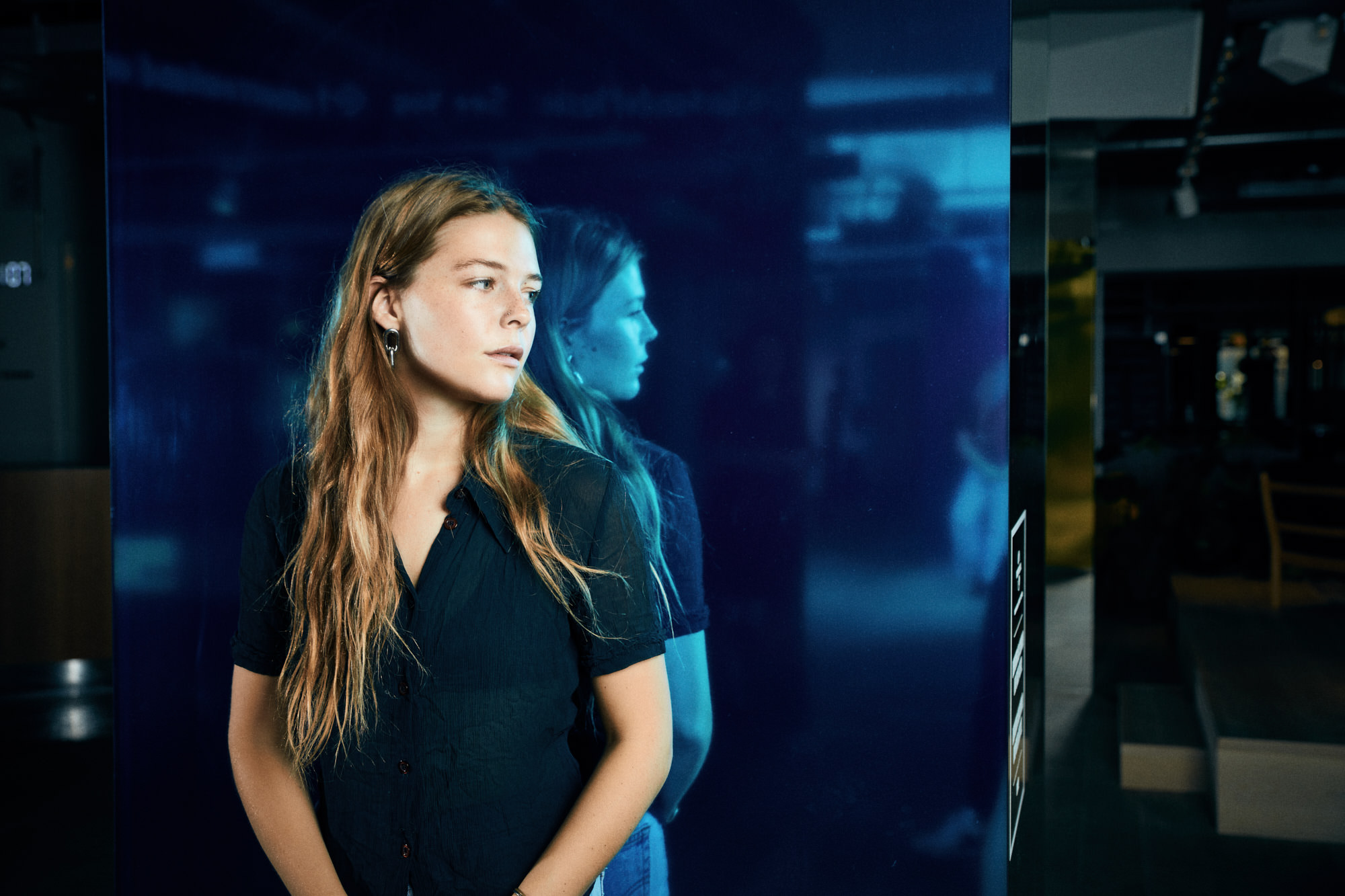
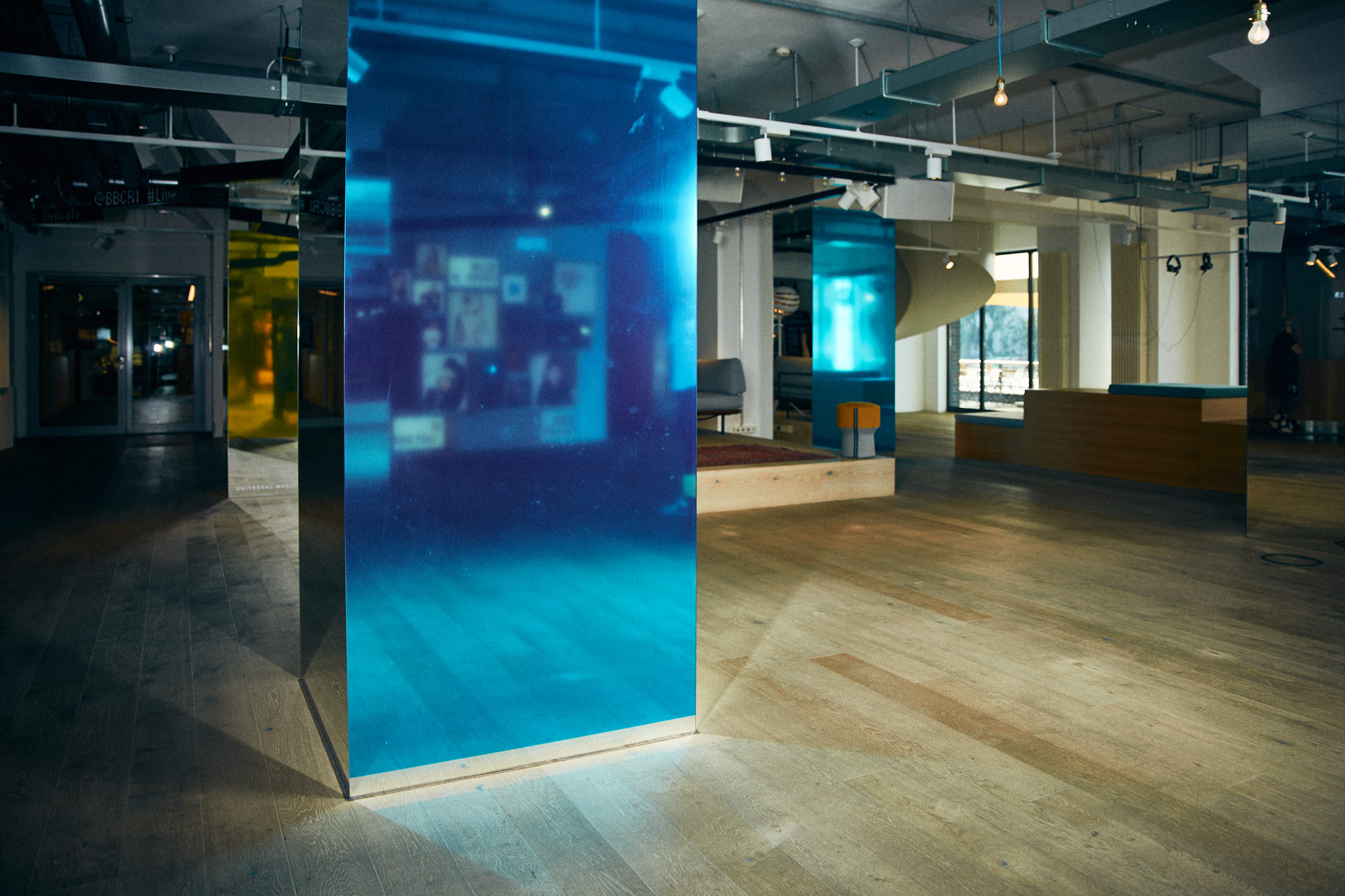
Jonas:
Lauryn Hill made a lot of political and societal statements on her record. Is it important to stand up for good to be perceived as a credible artist?
Maggie:
No. I think it’s important to stand up for whatever you stand up for. By the way, “credible artist” is an interesting, redundant term—because just by calling yourself an artist you should be credible. Being an artist is about not having something to prove but just being. And just making from what you are. I don’t think it’s required to make a statement on current events just to be an artist. But if you feel passion about it, speak about it! And that goes for your love life, your friendships or politics. It’s just about really caring about things.
Jonas:
In early 2016 when you were sitting down with Pharrell Williams at NYU and presenting him your song, he said following to you: “I have zero, zero, zero notes for that. And I tell you why: it’s because you’re doing your own thing, it’s singular […] That is such a special quality and all of us possess that ability. But you have to be willing to seek and you have to be really frank in your music and frank in your choices.” Was there a special moment in your life when you learned that real frankness is needed to create your very own style of music?
Maggie:
It’s not something I ever really thought about because…
Jonas:
… you’ve always been frank?
Maggie:
I’ve always been me. And that’s the only thing I’m really good at. (laughs)
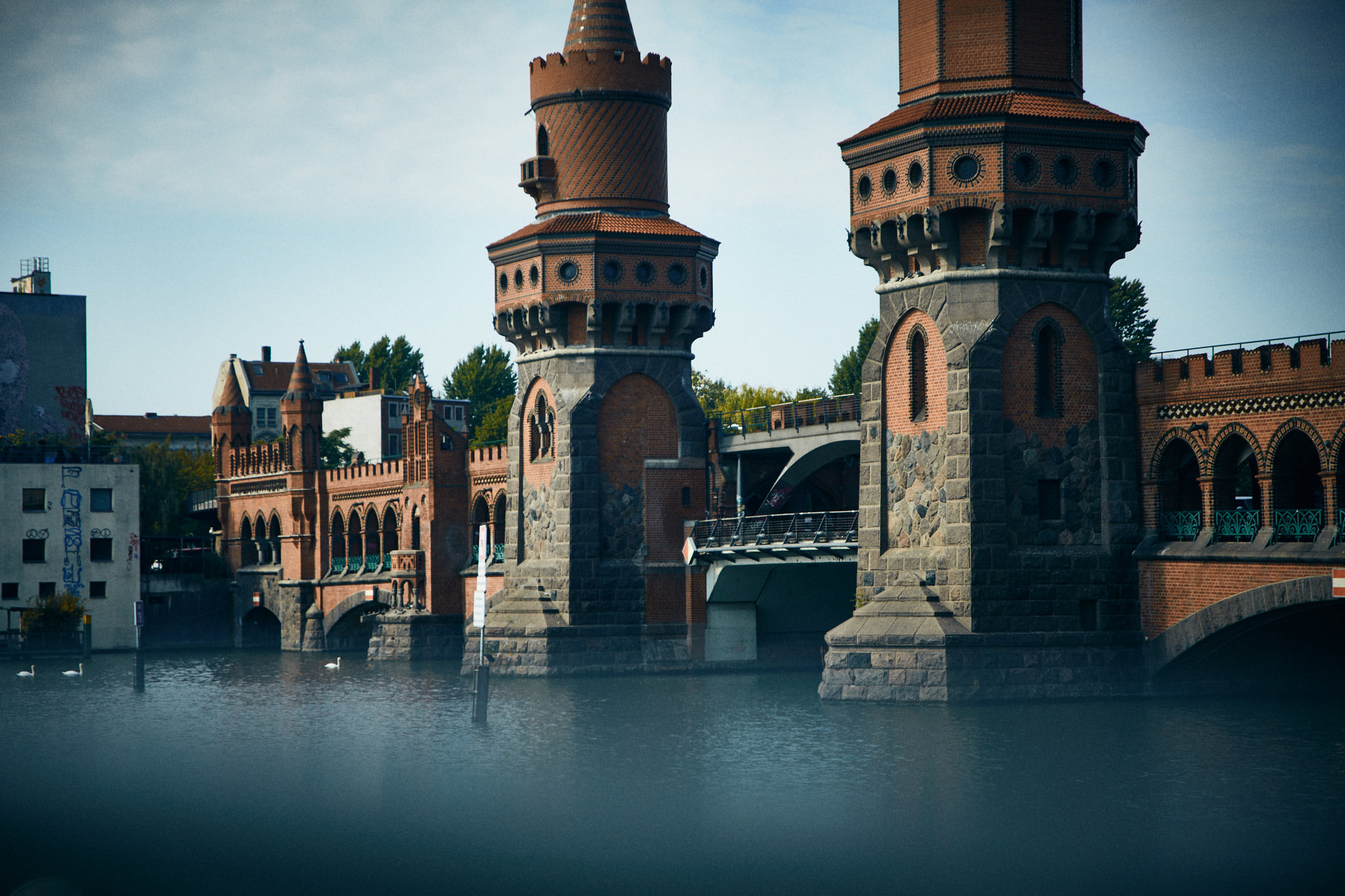
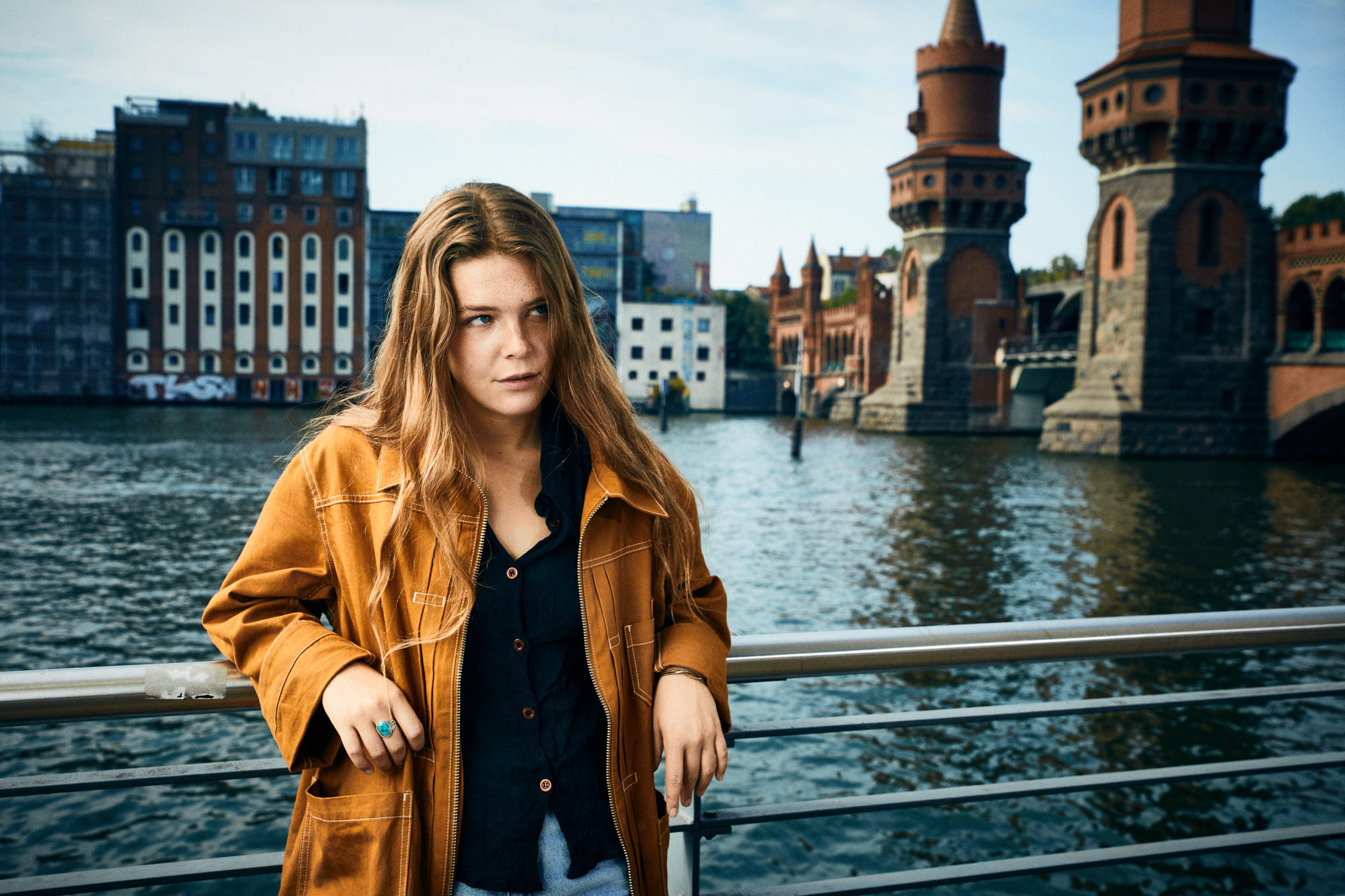
Jonas:
Pharrell also said that it wouldn’t happen very often that someone brings something completely new and singular onto the stage—and he mentioned the Wu-Tang Clan as a good example. Do you have a favorite band or artist that embodies this kind of a singularity in the world of music?
Maggie:
I have many! Björk, Alanis Morissette, Kate Bush, Tom Petty, Stevie Nicks, Lauryn Hill, Erykah Badu, Outkast—it goes on and on, they’re all really good. All you have to do is take a look into history. But do I have an artist that does it consistently? I’m just trying to think if there’s someone I’ve been listening to recently who does this… probably David Byrne. I saw him perform at Coachella in 2018 and I had never seen anything like that. Everyone on stage was wearing these oversized suit jackets that had like three to five pockets and looked totally absurd. The gig was set up somewhere between a Broadway play, a marching band, and a rock band. They had like 14 musicians on stage and everyone was standing in a line, even the drummer. It was totally deconstructive—and this is what I love! People like David Byrne continue to constantly challenge themselves. It would have been so easy for him to just go up there, walk up on stage, wearing whatever he was wearing, catch up staying, have a band playing. That would have made everyone happy. But he started the performance alone sitting at a table, holding a plastic human brain in his hand he was talking to. It was amazing! He didn’t have to do that, but he still loves doing these things. He’s still engaged, he’s still creating something new, he’s still thinking about what it means to perform on stage and what it means to bring music to life. He’s very inspiring.
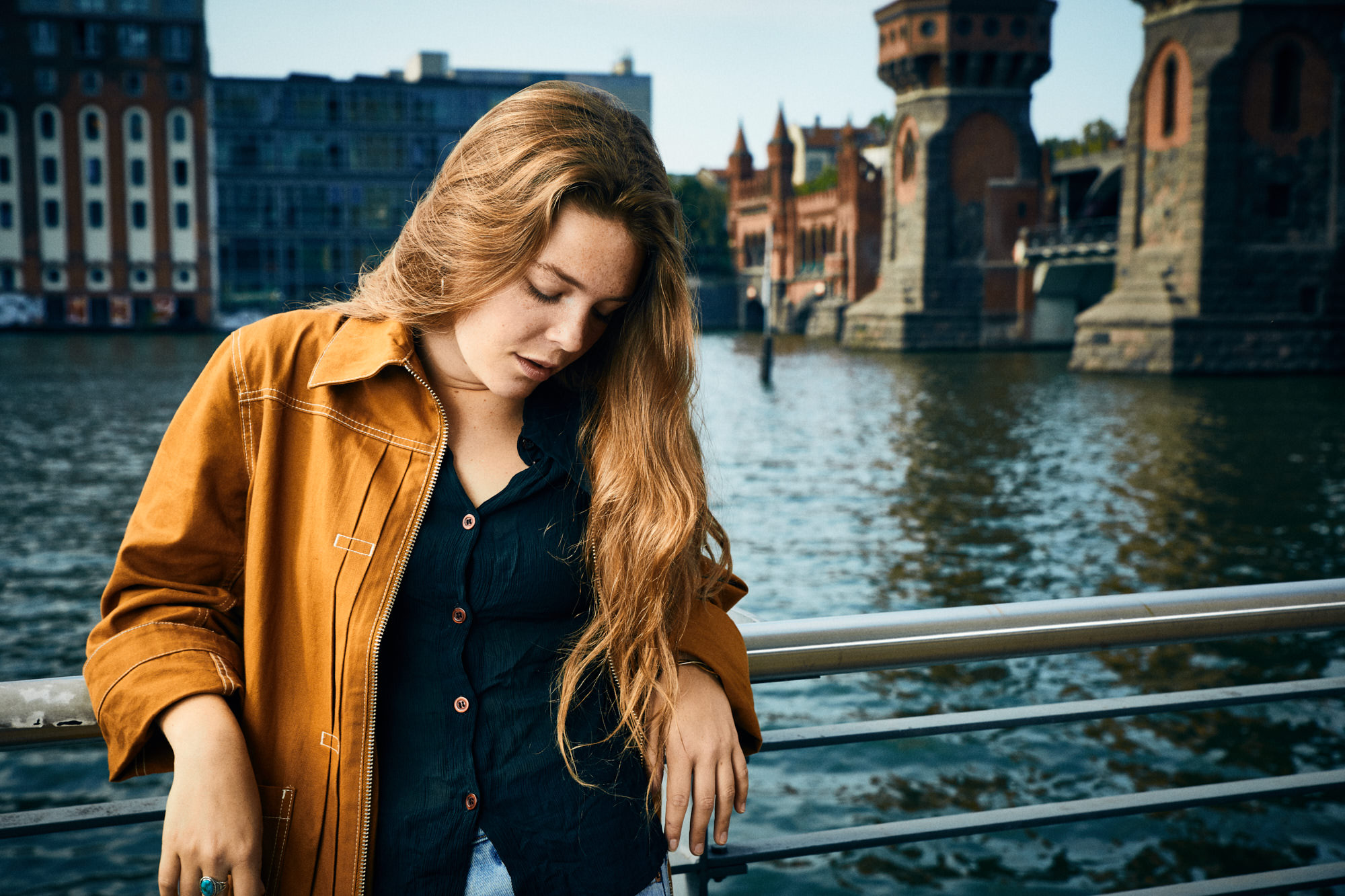
»In a city, it’s really easy to ignore where things are created for you and your lifestyle.«
Jonas:
Speaking of inspiration: Your song “Alaska” is inspired by Alaska’s nature, right?
Maggie:
Kind of…
Jonas:
In your documentary Back In My Body, you’re talking about the experiences you made there. What is it in your heart, in your inner soul that so consistently calls you to pure nature?
Maggie:
It’s less about nature and more about being alone, I think that’s part of that boredom thing. I get pegged a lot as a nature girl—which is fine, I love nature! Nature is important—because it is disappearing. And it reminds you of your vulnerability. In a city, it’s really easy to ignore where things are created for you and your lifestyle. But “Alaska” isn’t about the place itself so much, even though it got that title. It’s about the time of change in my life, it’s about what I’m processing and what I’m thinking about.
»Democracy is this beautiful system that, when everyone is involved, can give the best of humanity.«
Jonas:
We’re facing times when politics and parts of society are questioning or denying the fact of climate change.
Maggie:
Right.
Jonas:
How do you deal with that behavior in society, considering that nature is so important?
Maggie:
Climate change is important for everyone. For me, it’s important because I love nature. But it’s also important because I love my parents. Or my partner. And I want to have kids someday. It’s important because it’s about community and shared spaces. And more than anything, it’s about respect—for the world around us and consideration. I think something that I try to do with my life as well as with my music is being really purposeful about the things I say and do. I try to make decisions based on all factors and to think of the world outside of myself. This is something I think about so much in my country because we’re so divided. There’s so much hate. But realistically, the things that are dividing us are really anti-partisan issues. Gun violence, for example, is a human issue, it’s not something that only Democrats or Republicans deal with. It’s something that affects everyone. In my opinion, politics work so much for us when we’re involved in them. Democracy is this beautiful system that, when everyone is involved, can give the best of humanity. But it’s not really doing that right now, everything is changing.
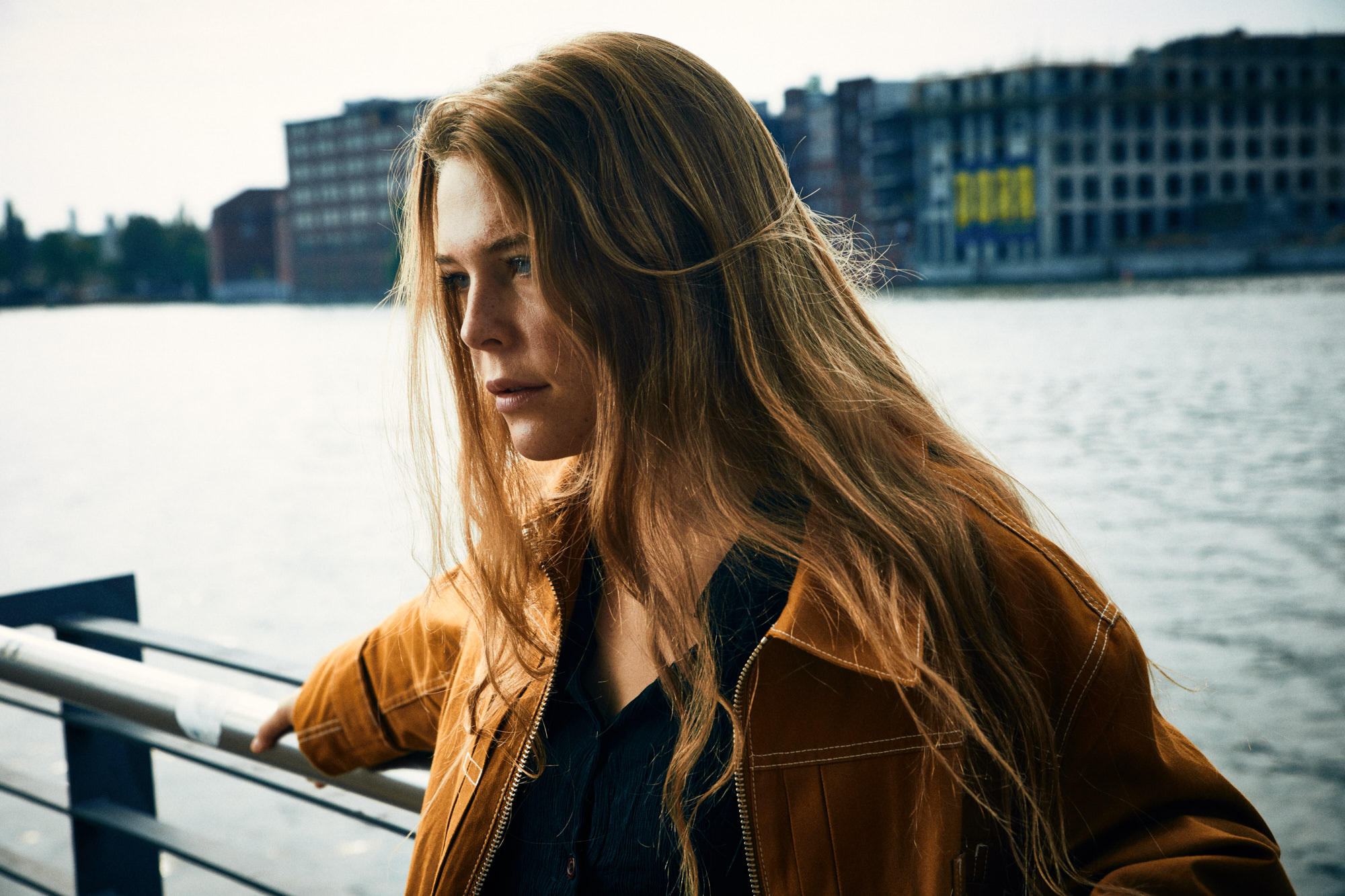
Jonas:
But there’s still hope! Just look at people like Emma González, David Hogg or Cameron Kasky: a few teenagers that stood up against the NRA when they started a nationwide anti-gun movement after 2018’s high school shooting in Parkland, Florida.
Maggie:
Oh yes, that’s very inspiring! And that’s what “Give A Little” is about. The song was written on the day of the National School Walkout against gun violence. On the one hand, “Give A Little” is as much about my life. I wanted to reintroduce myself to my fans like I wrote it, I wanted to start my show in terms of “Alright, we’re starting over! Forget your ever-new me! Let’s just be present!” But on the other hand, it’s also a protest song in the style of Al Green. That’s something I love so much about his music: you don’t need to know that those songs are protest songs to enjoy them, but if you put them in context, maybe they have a new meaning and that feels really true to me.
#maggierogers #mypmagazine
More about Maggie Rogers:
maggierogers.com
facebook.com/maggierogers
instagram.com/maggierogers
twitter.com/maggierogers
Photography by Steven Lüdtke
Interview: Jonas Meyer
